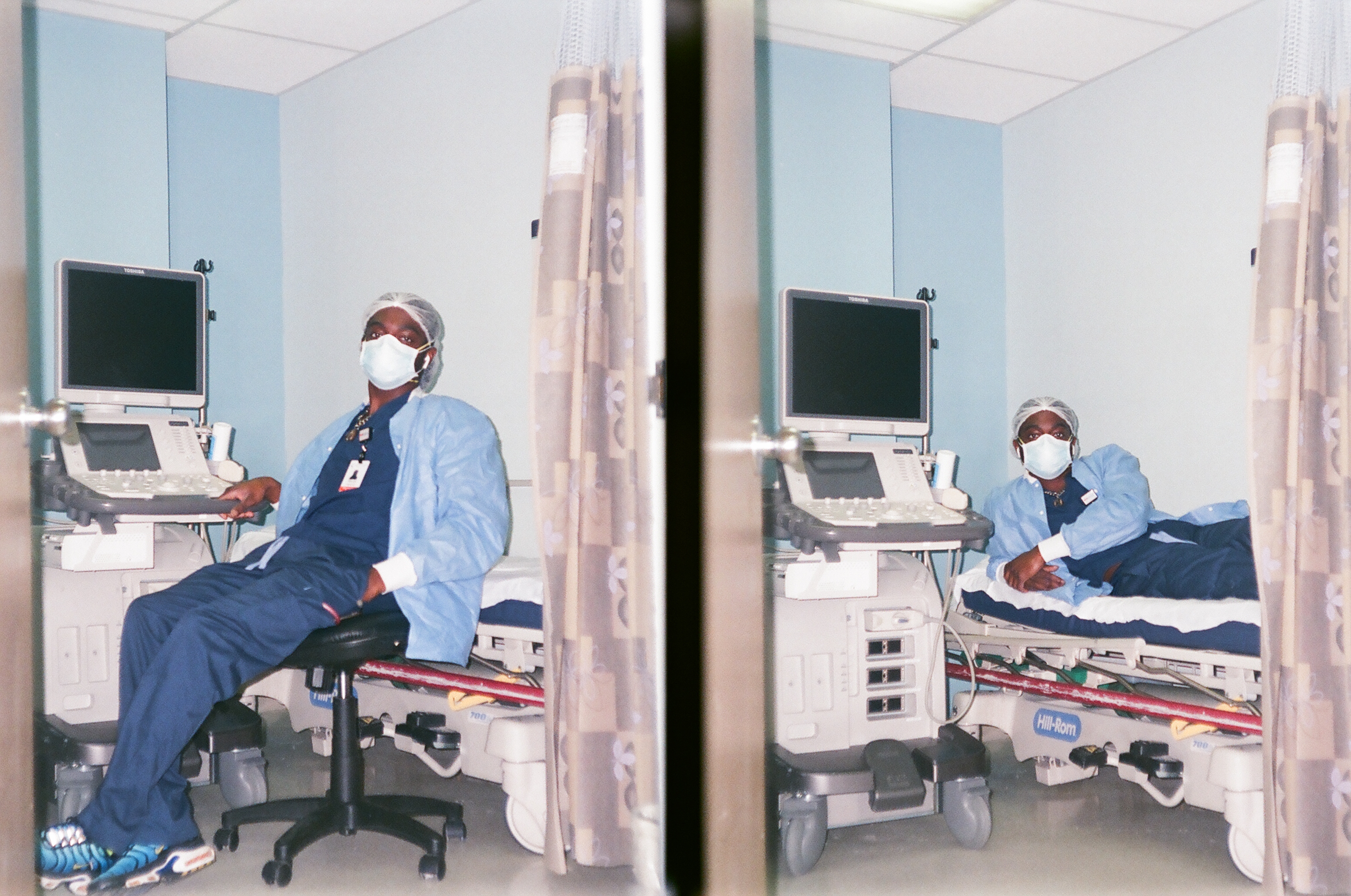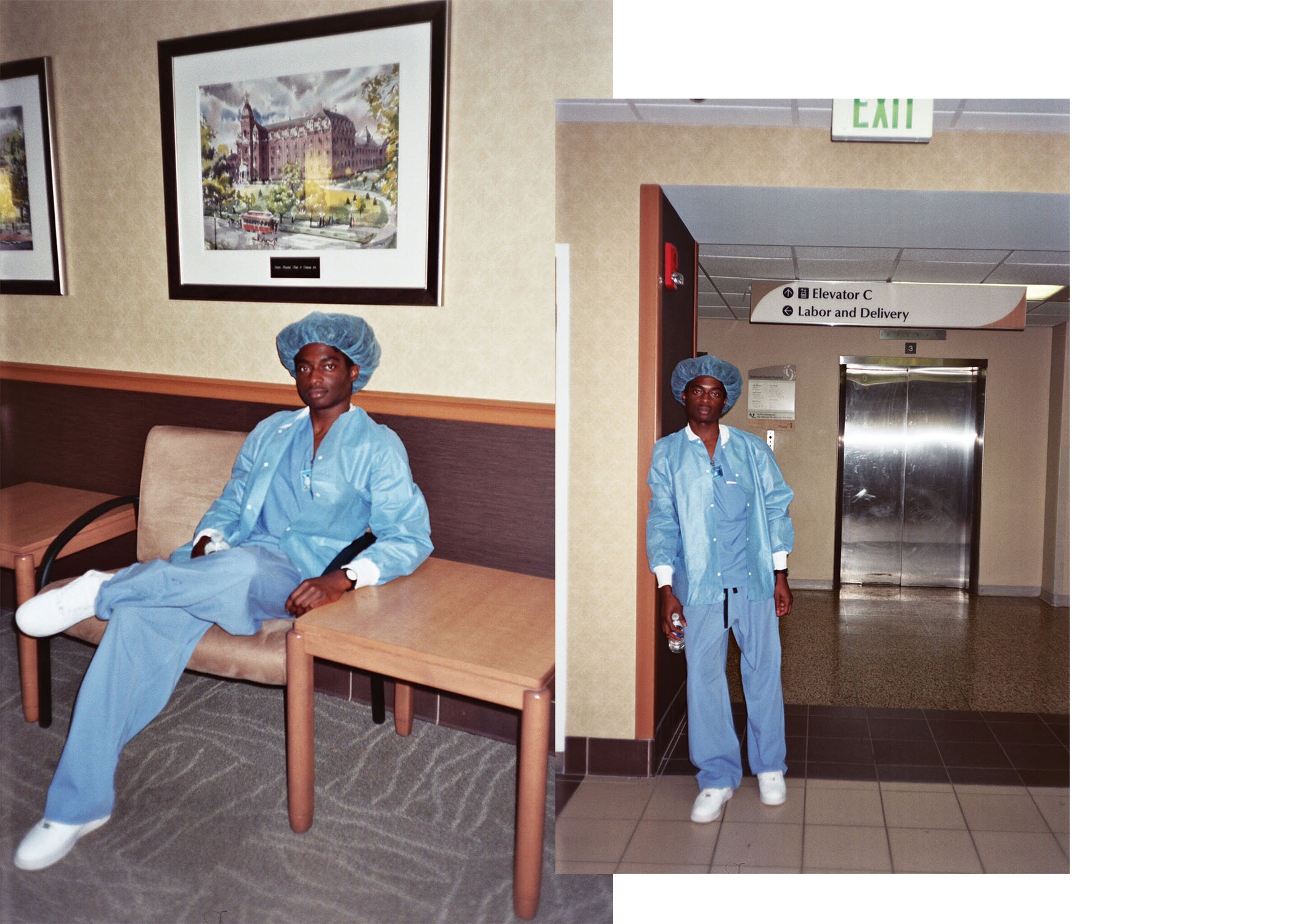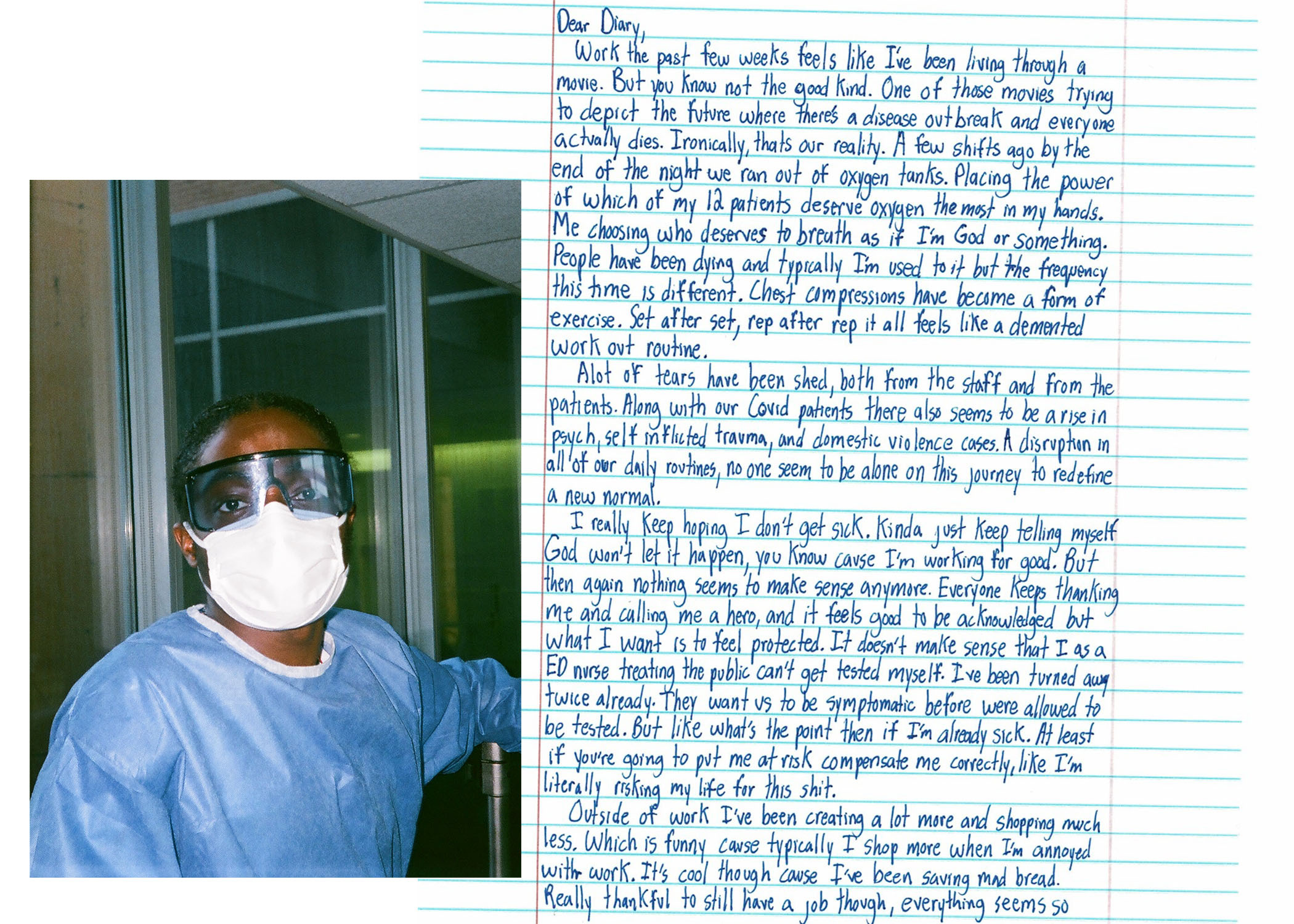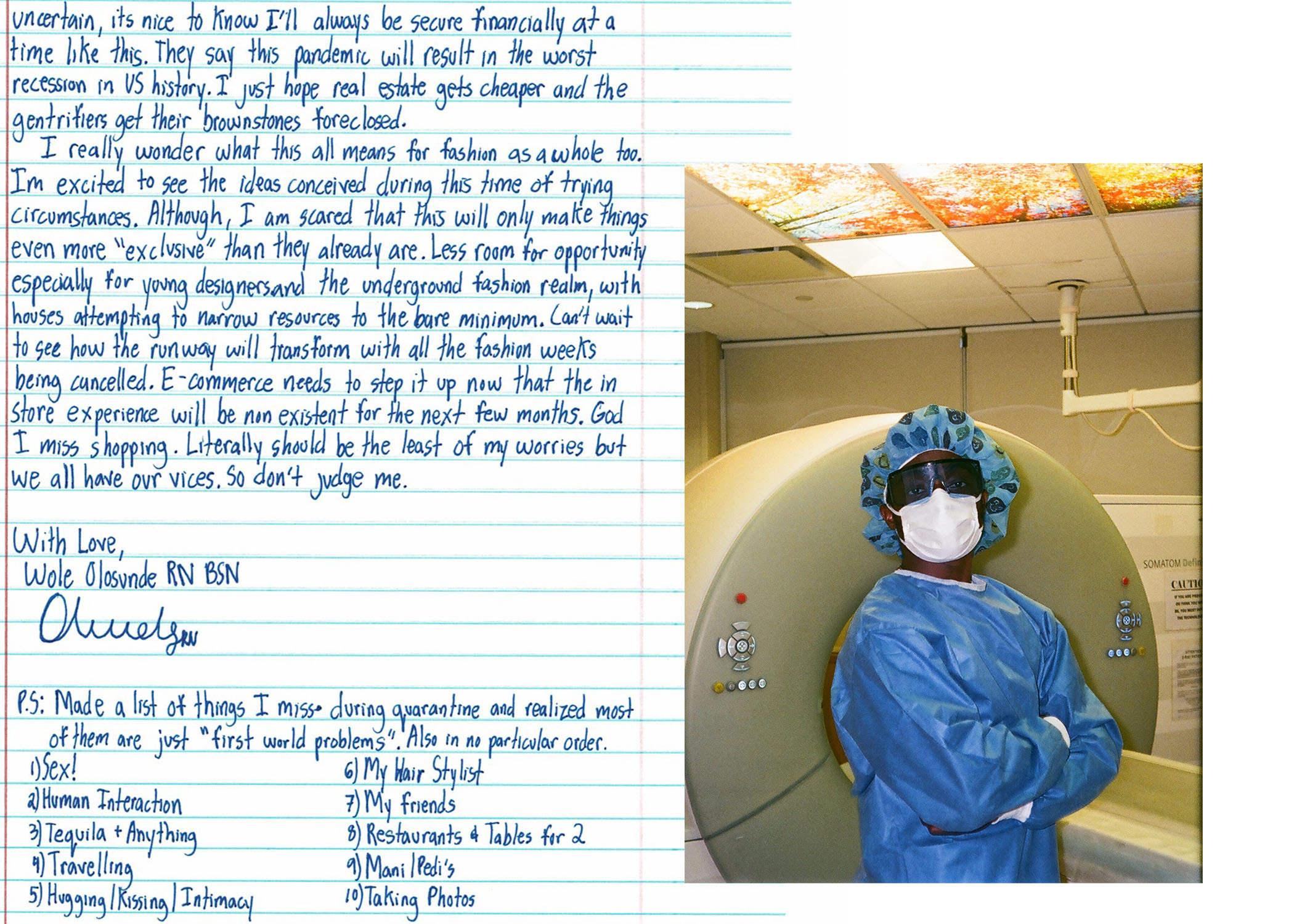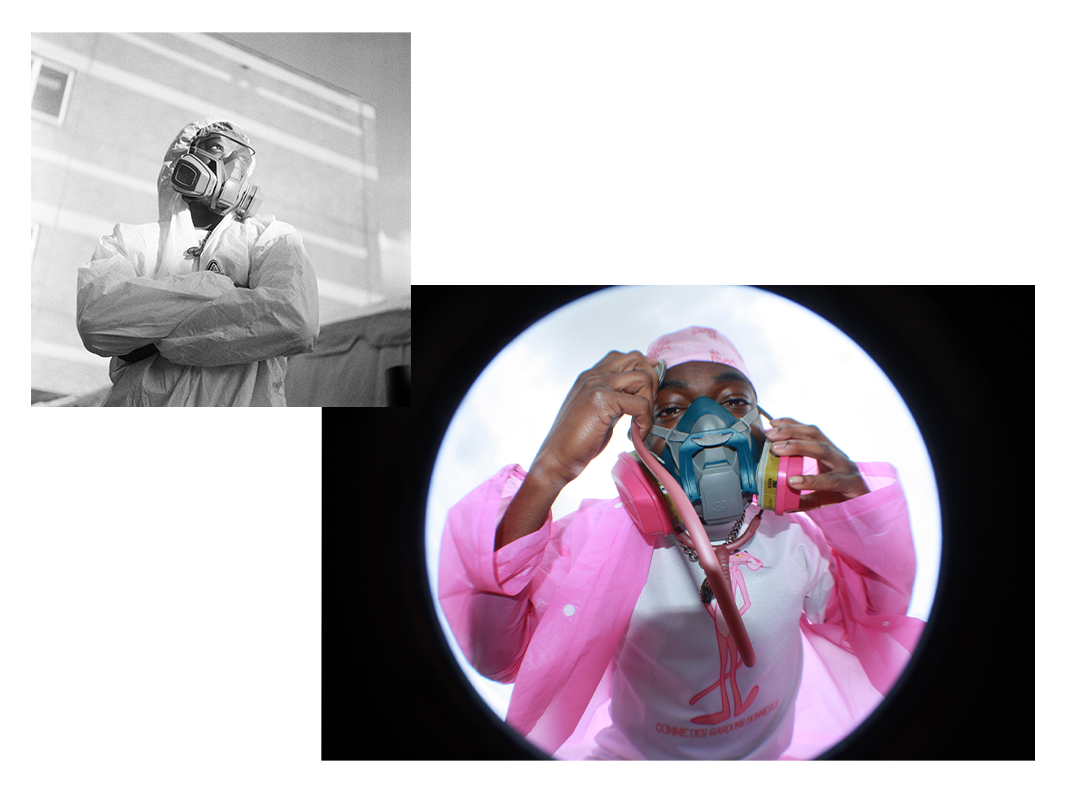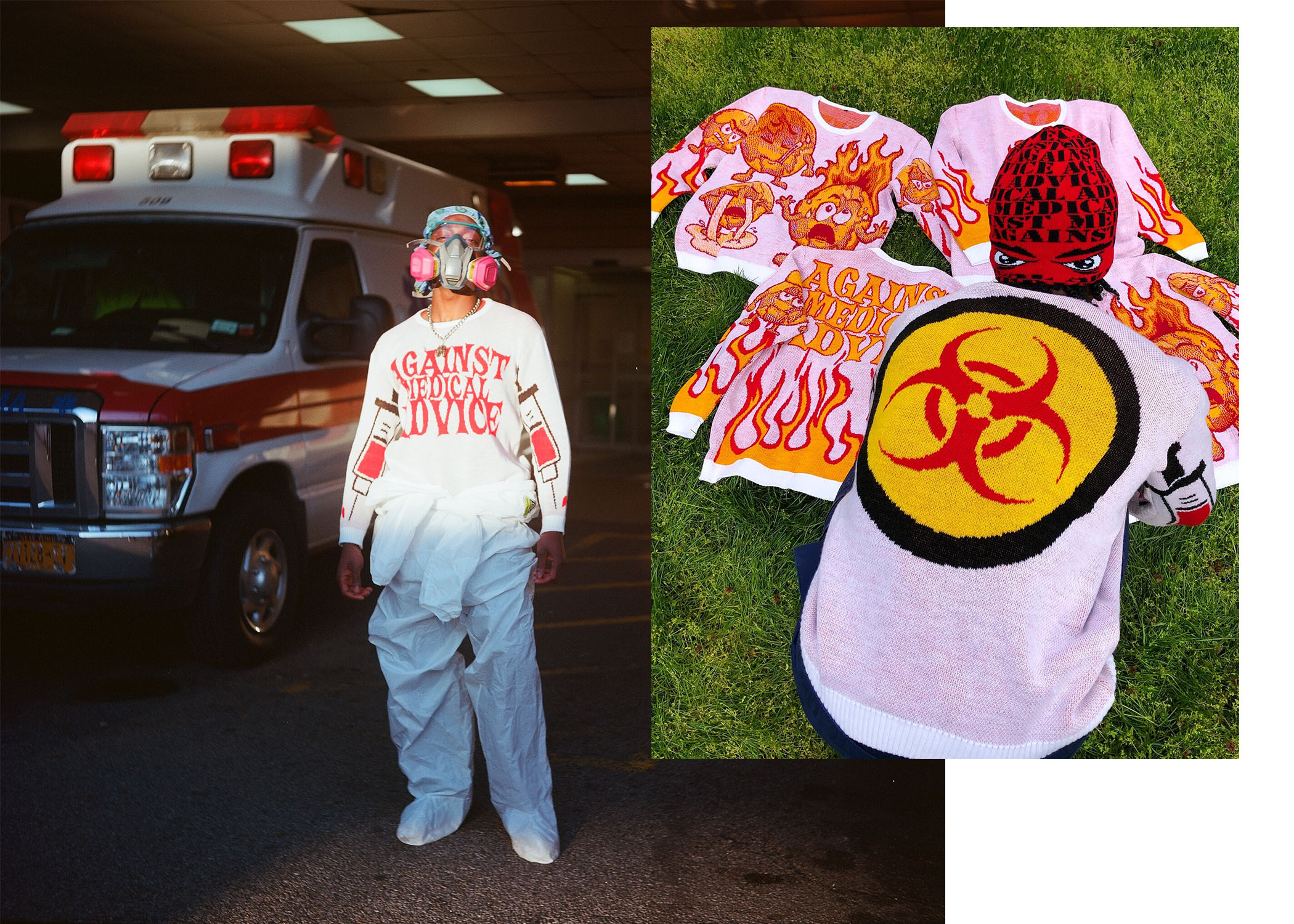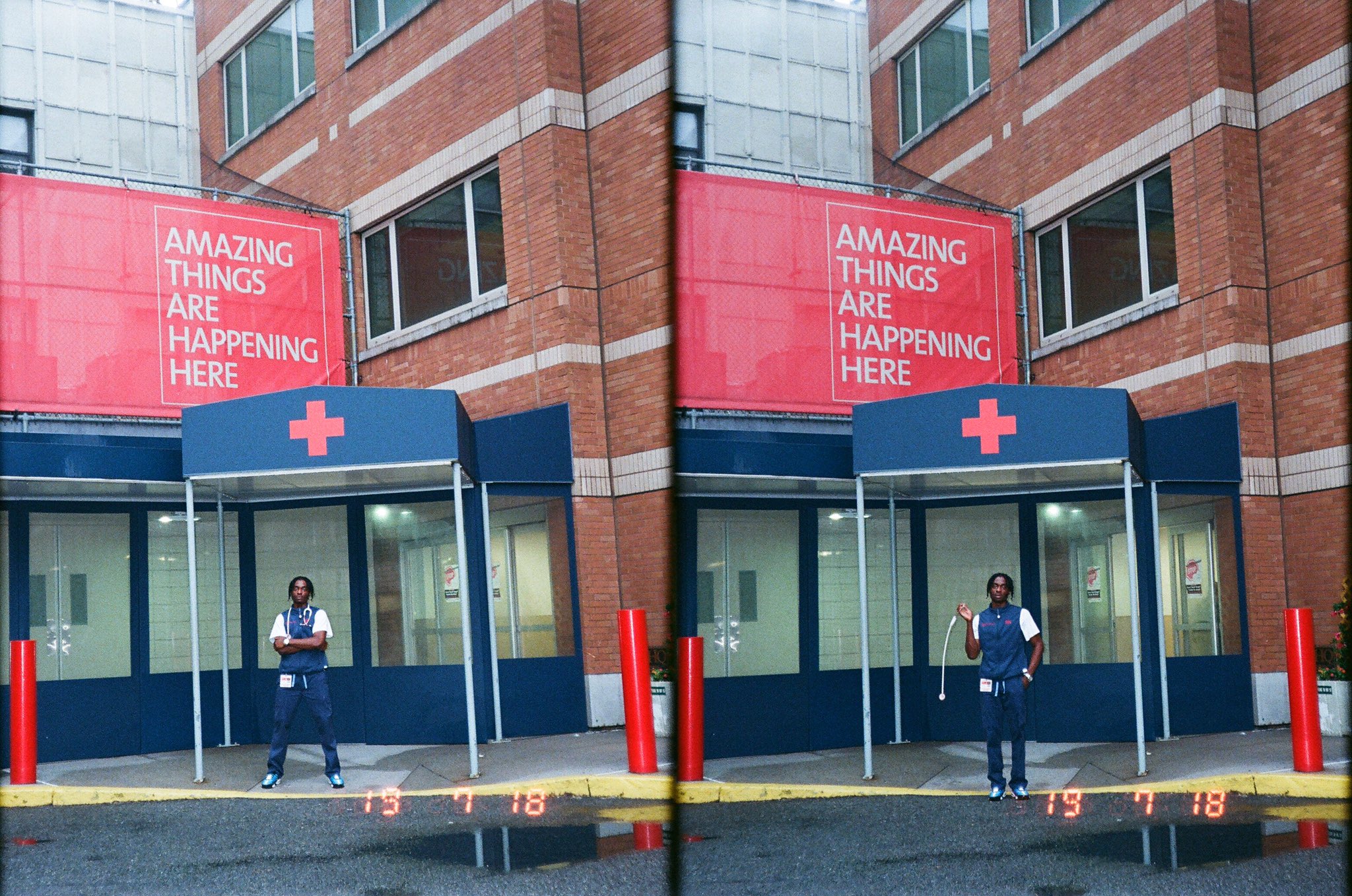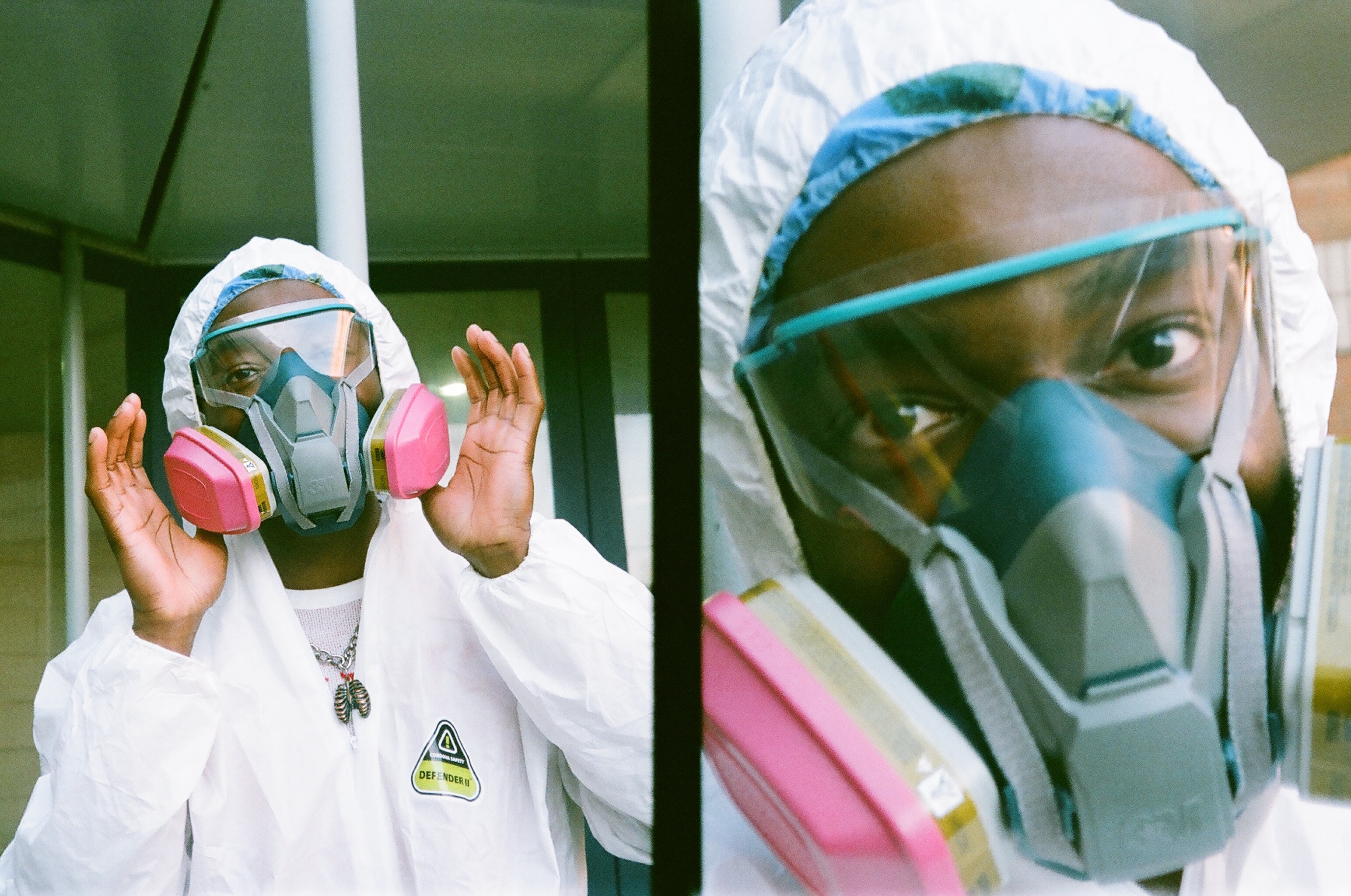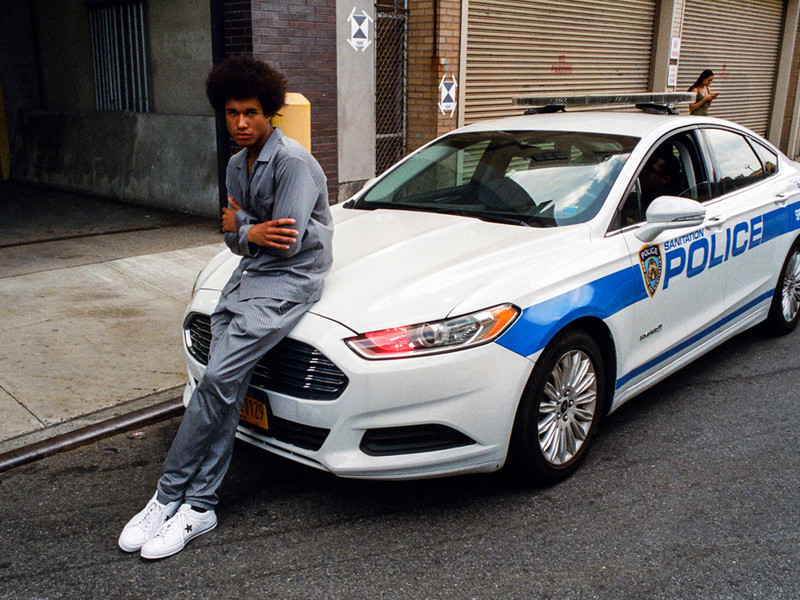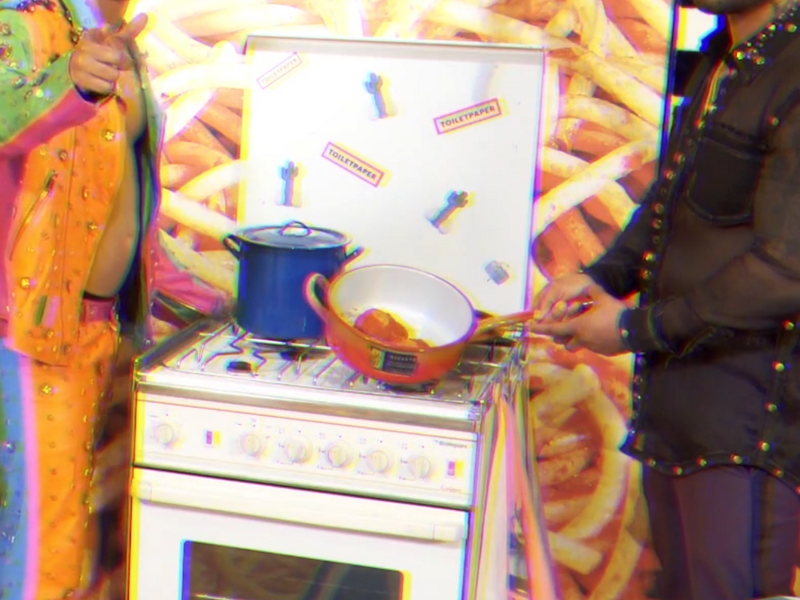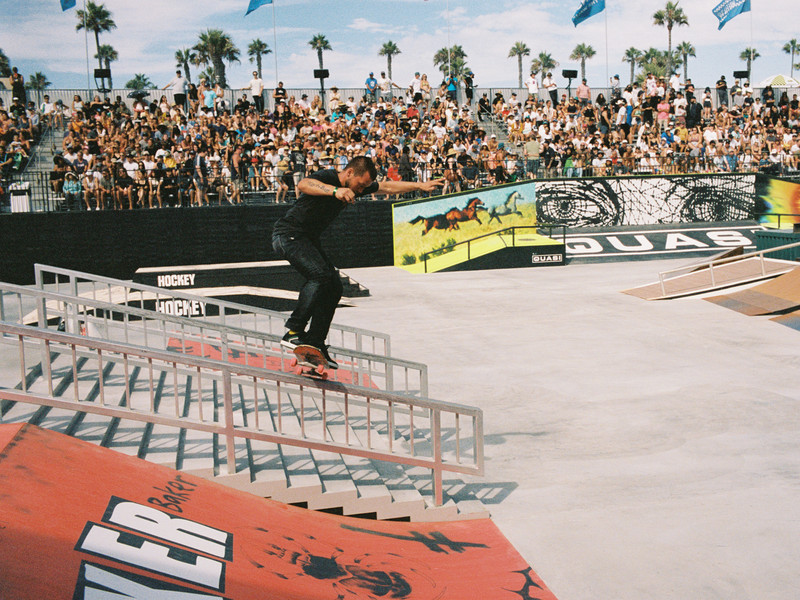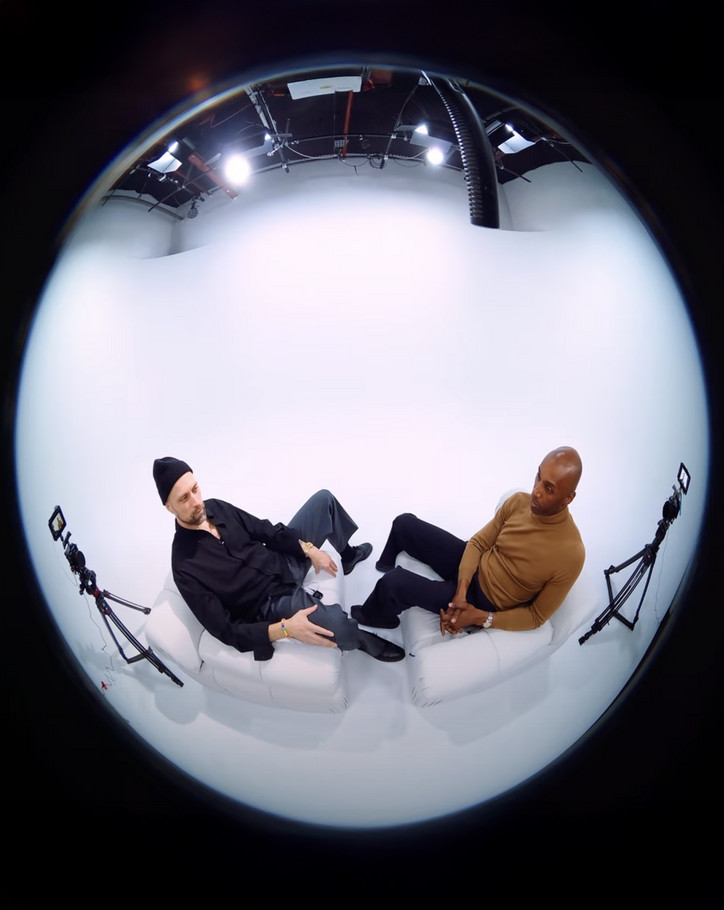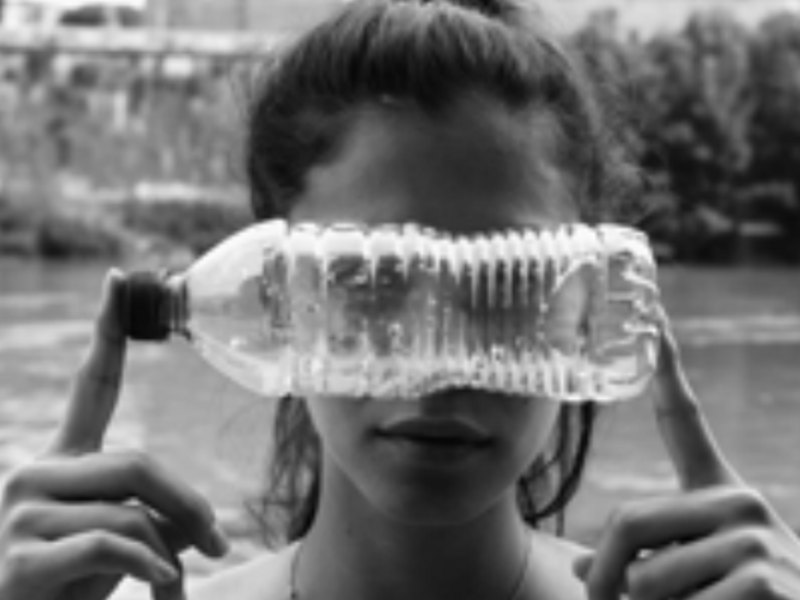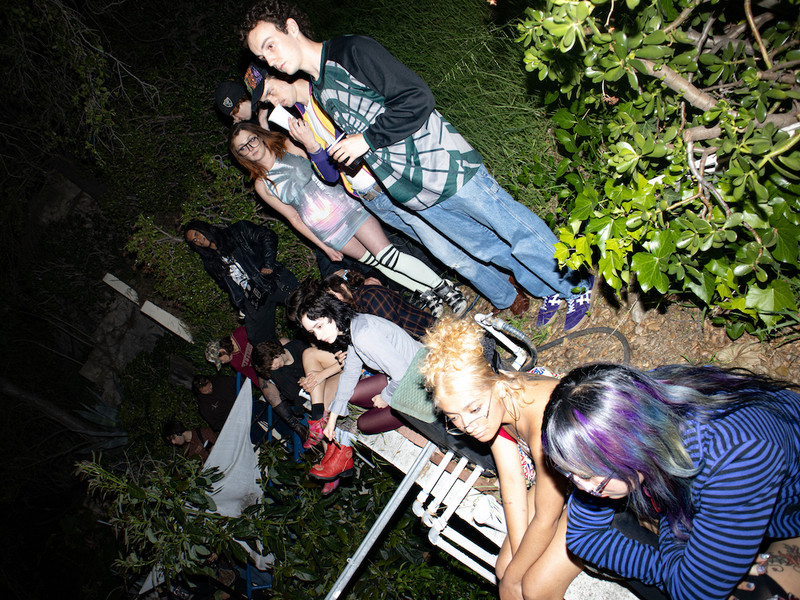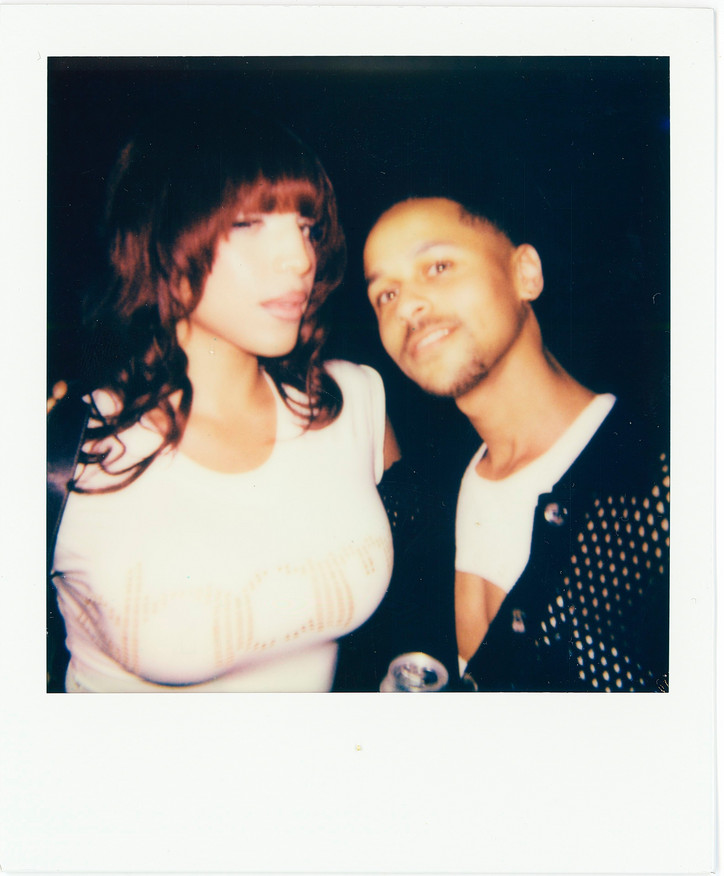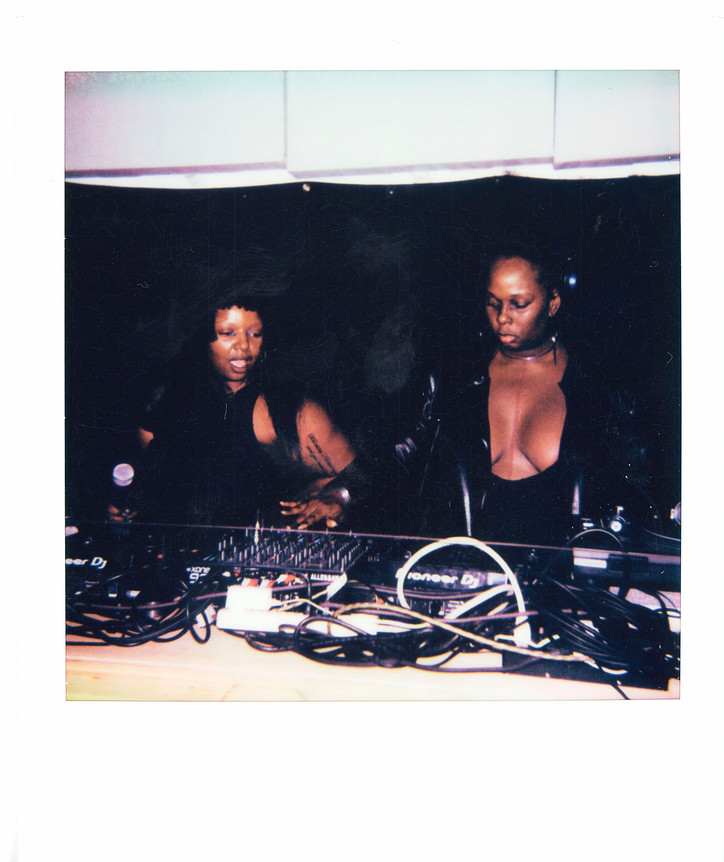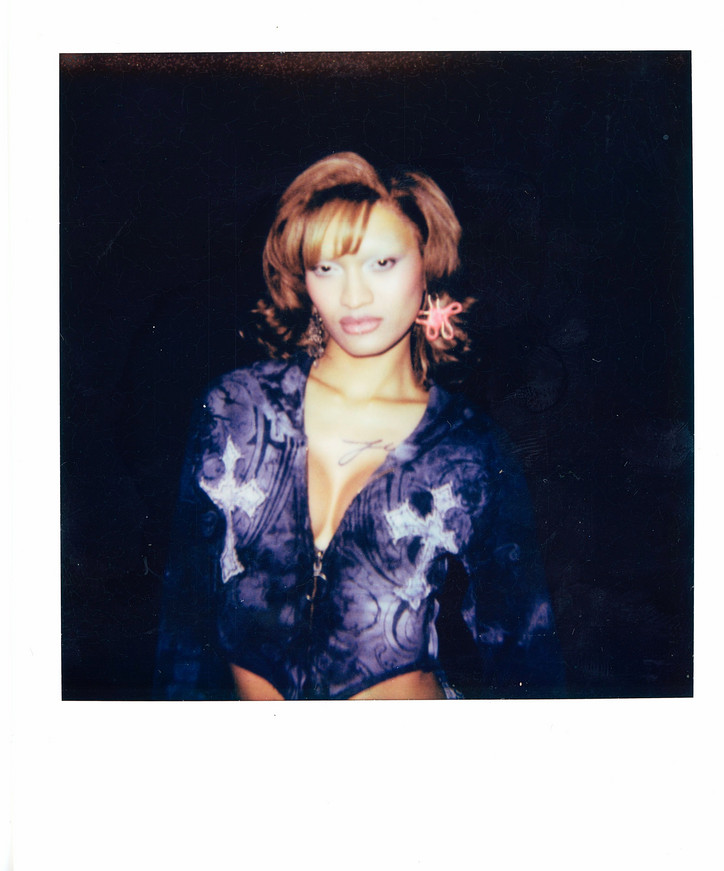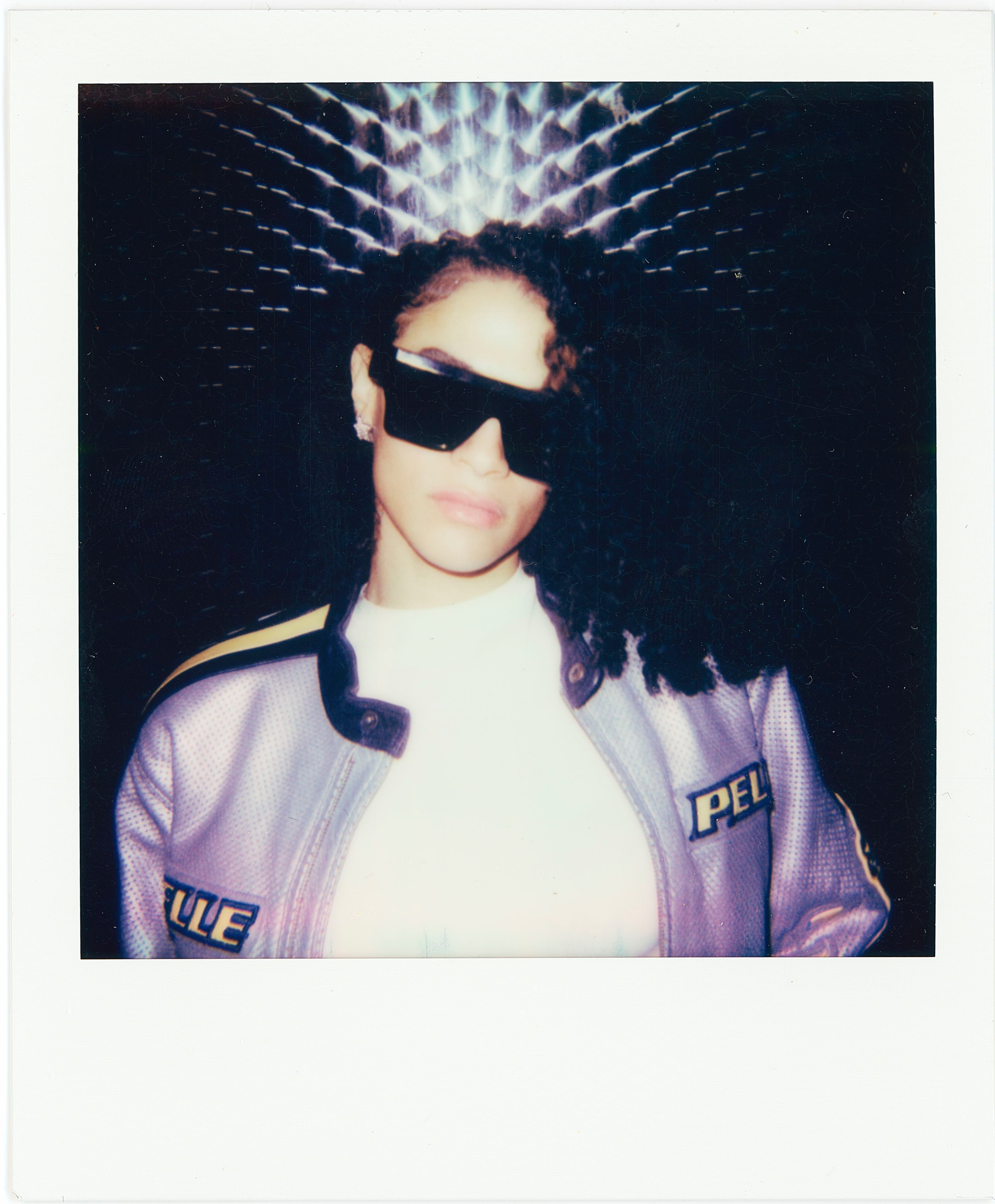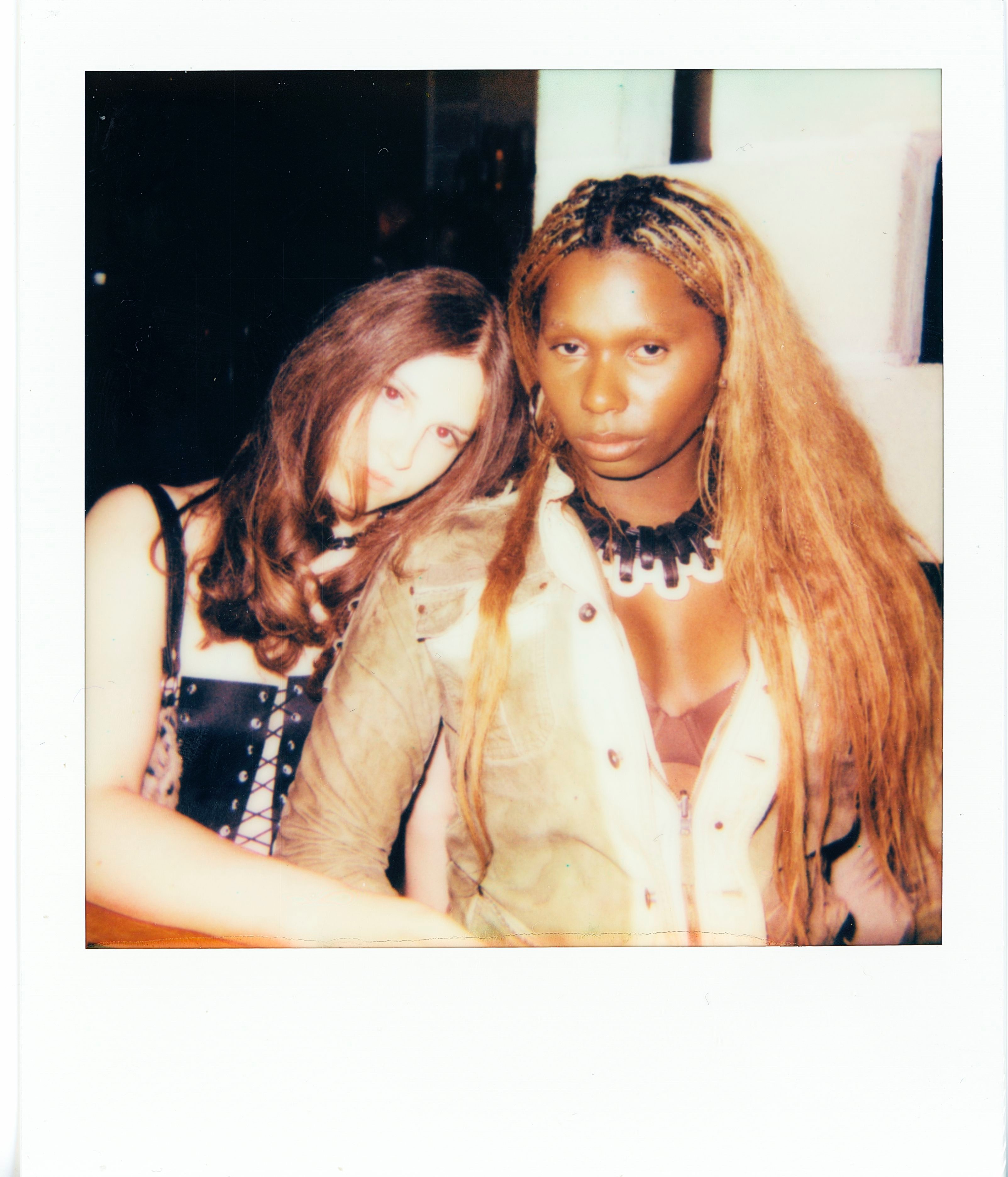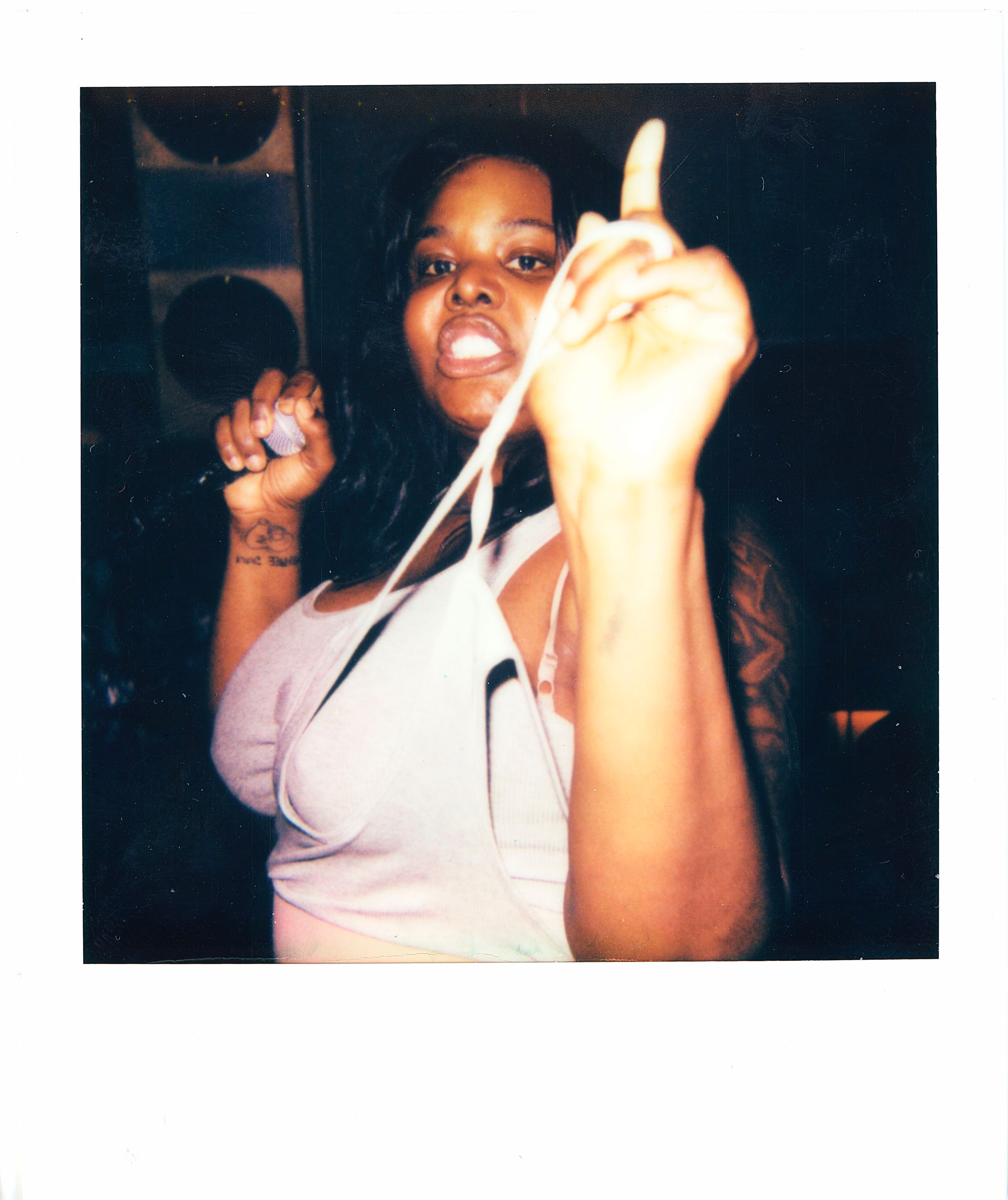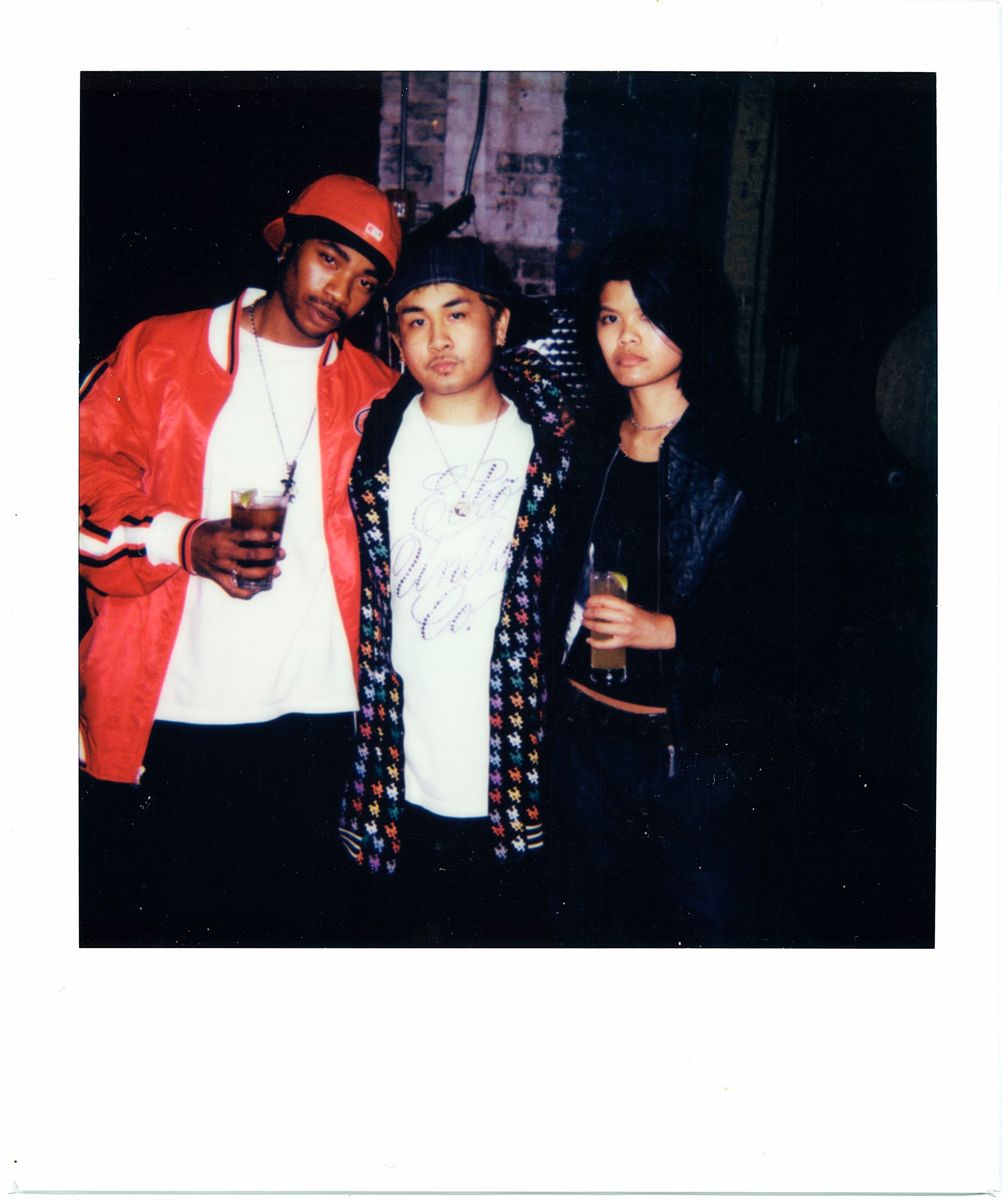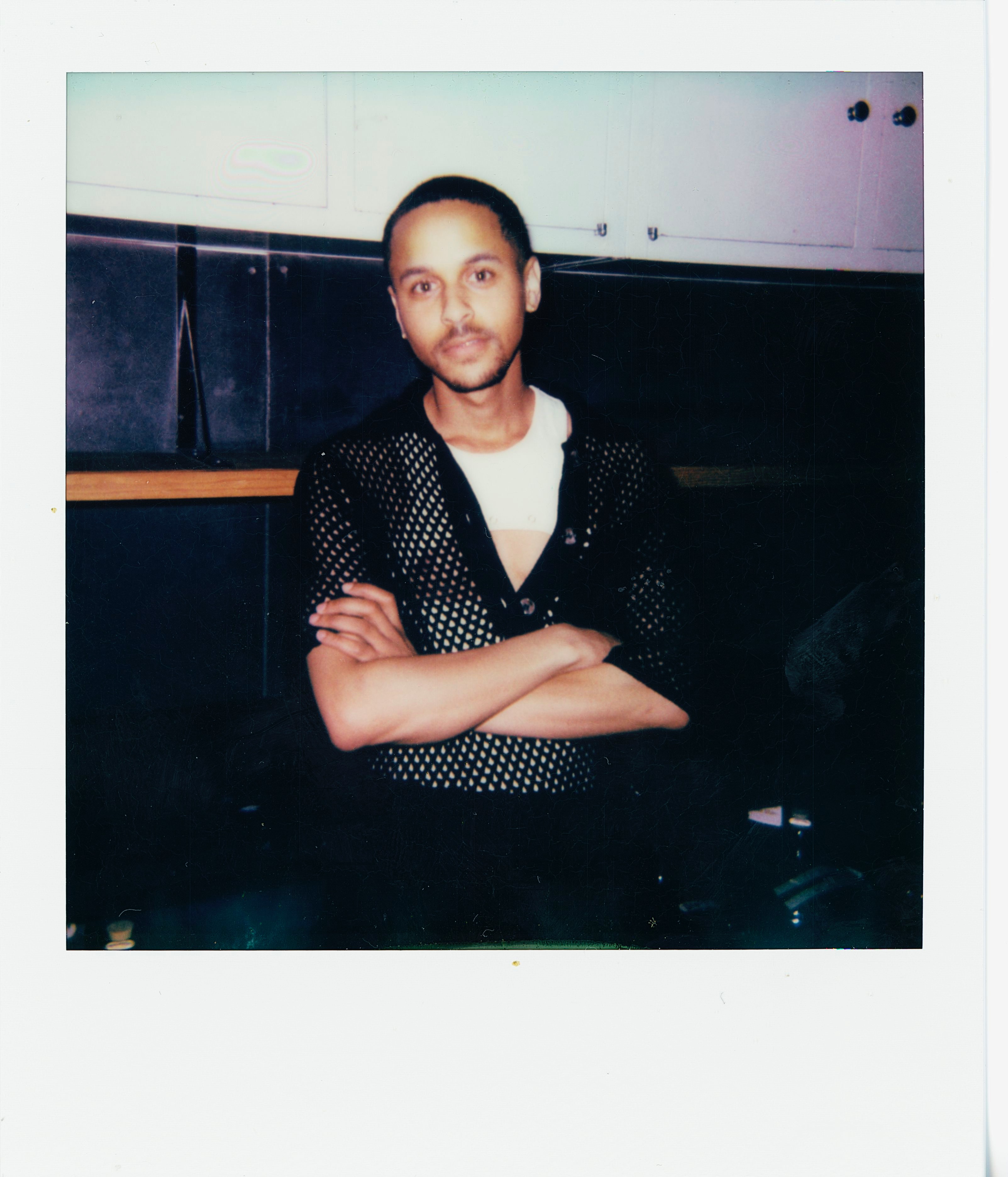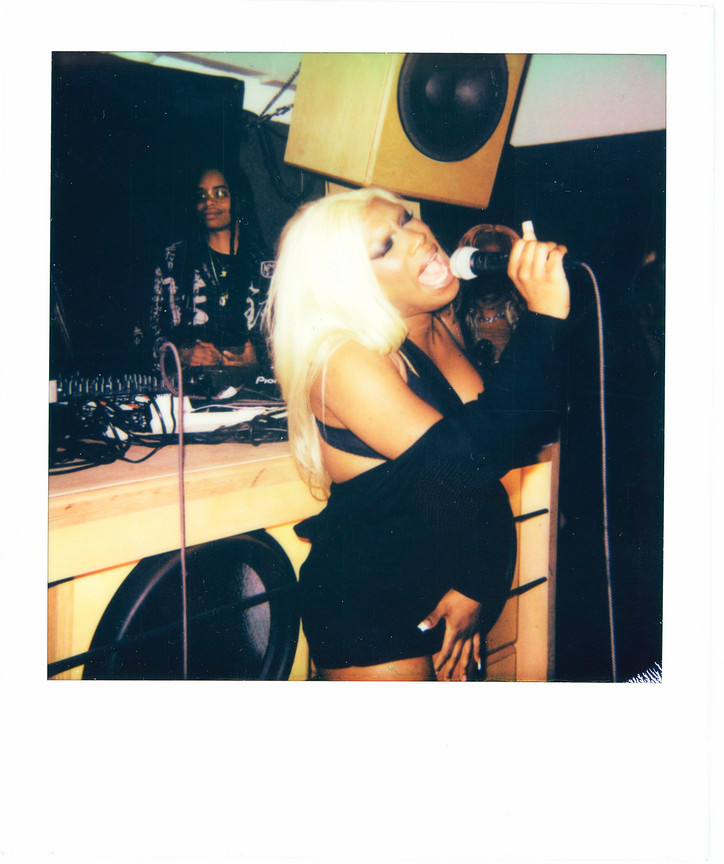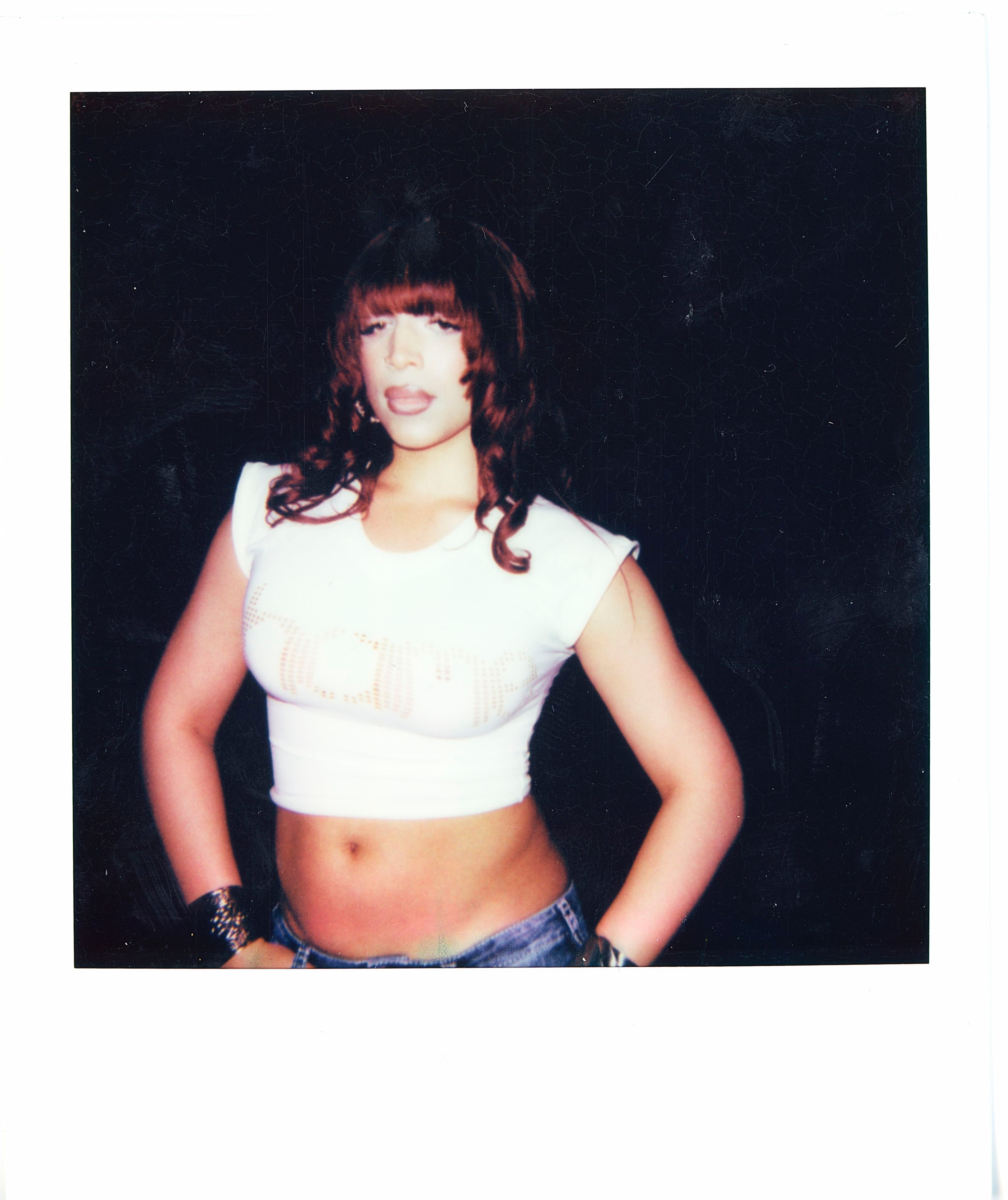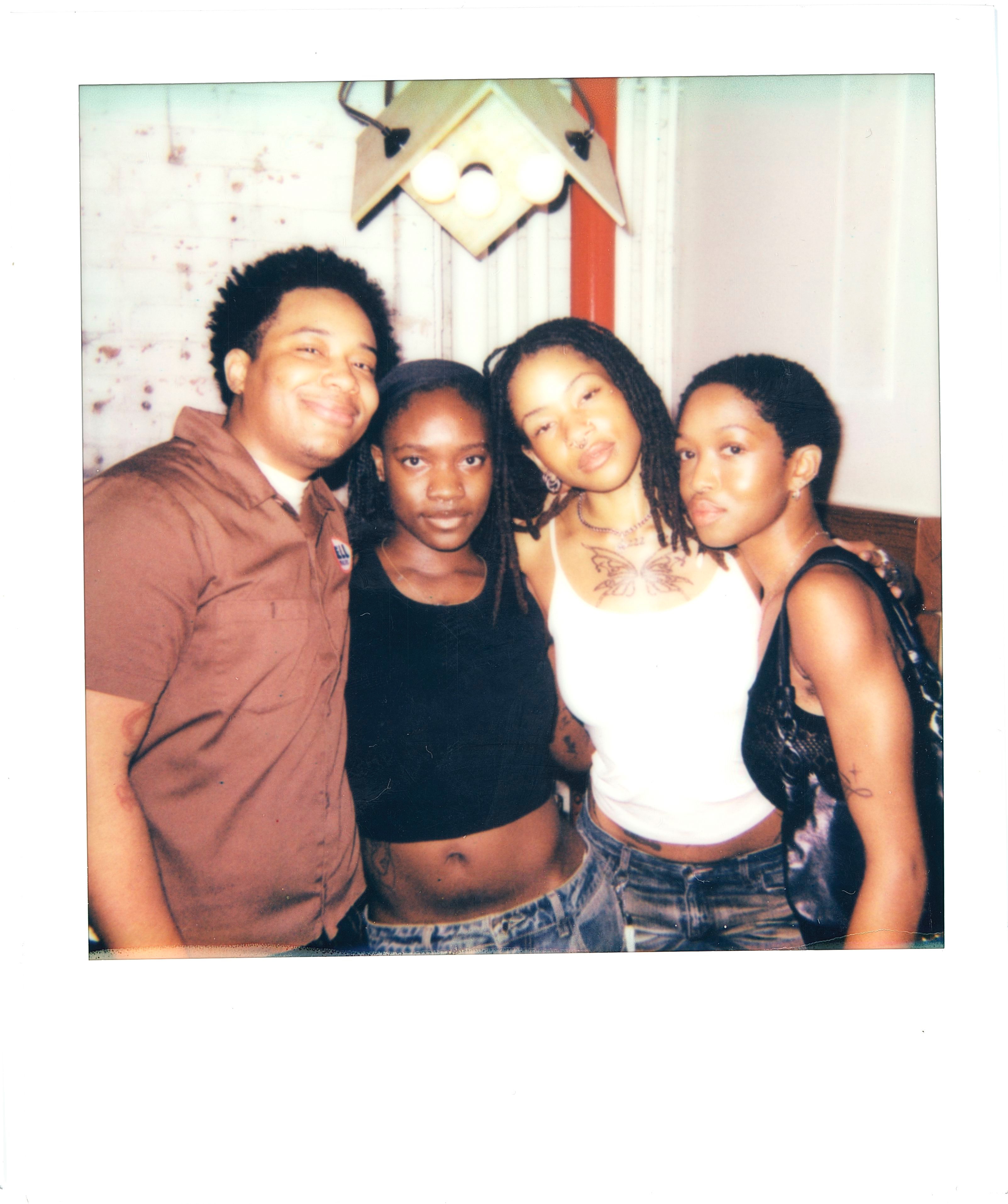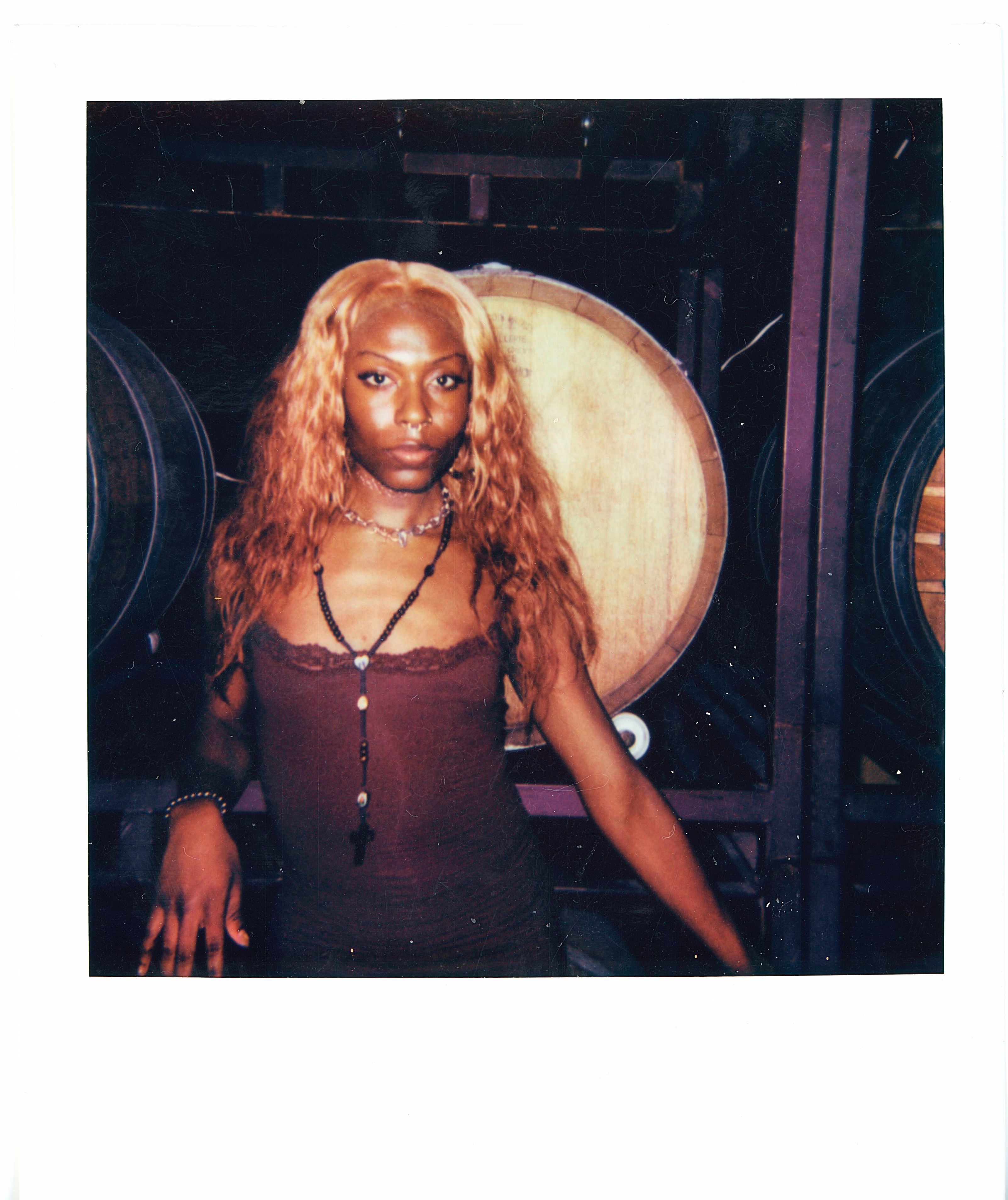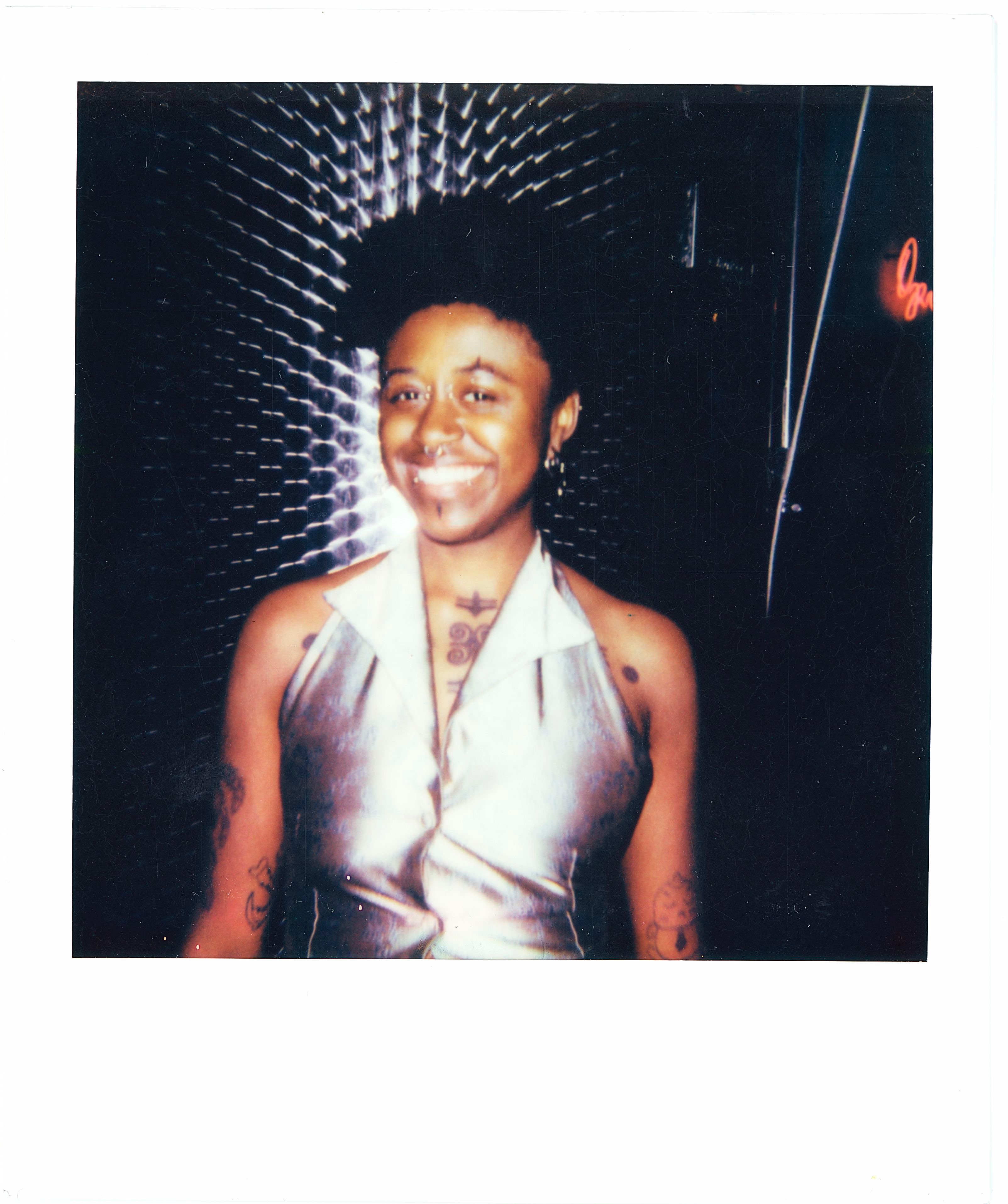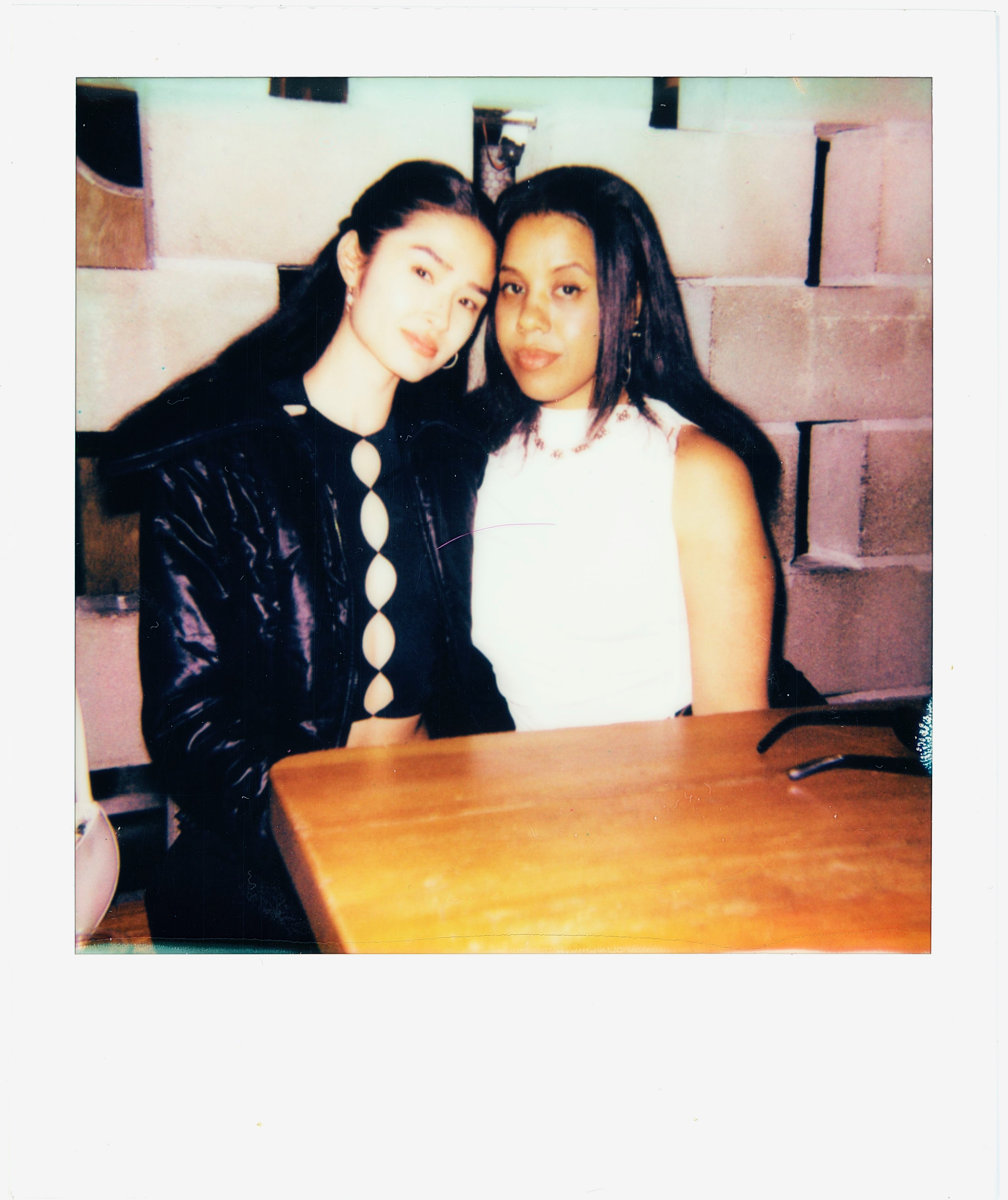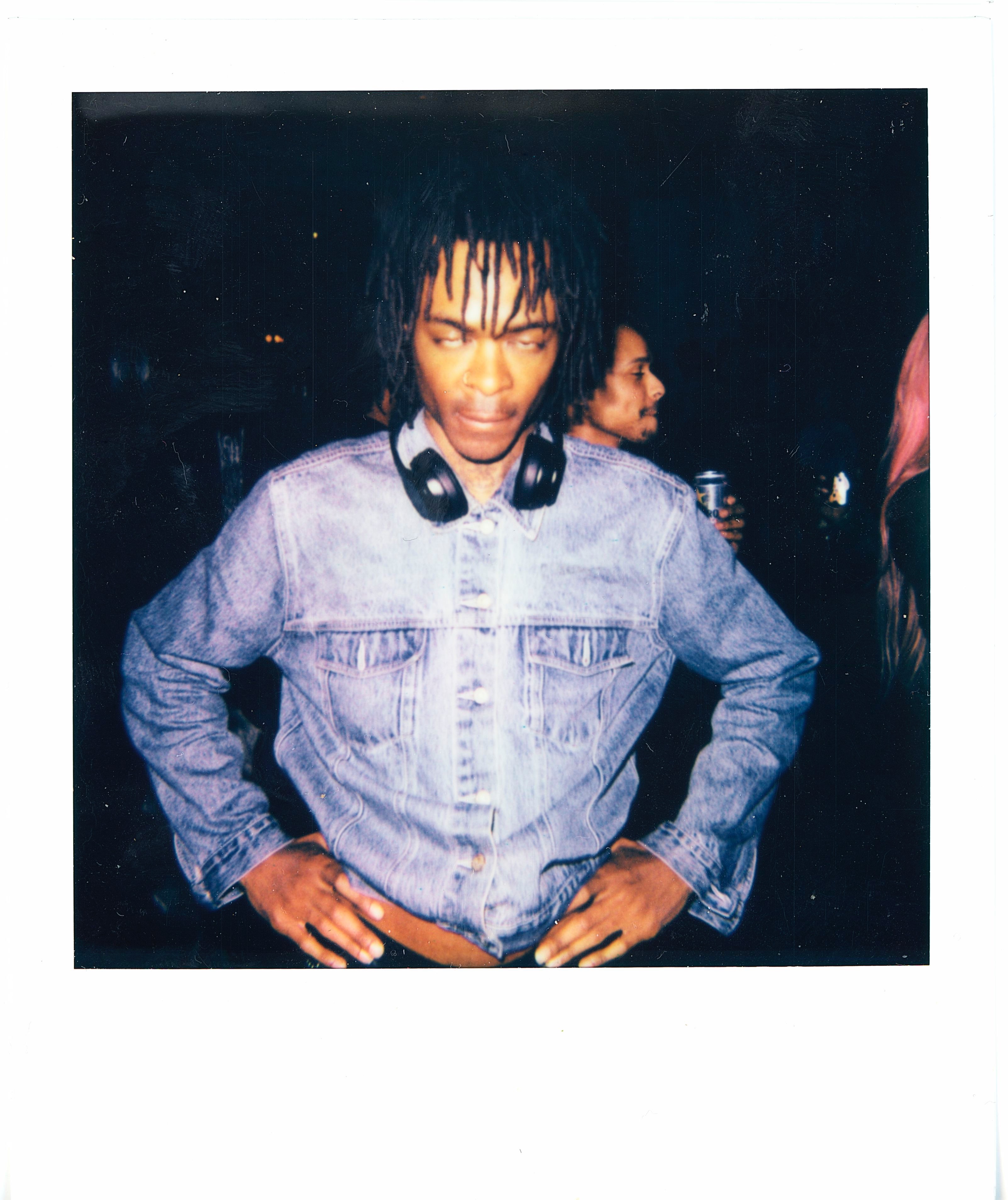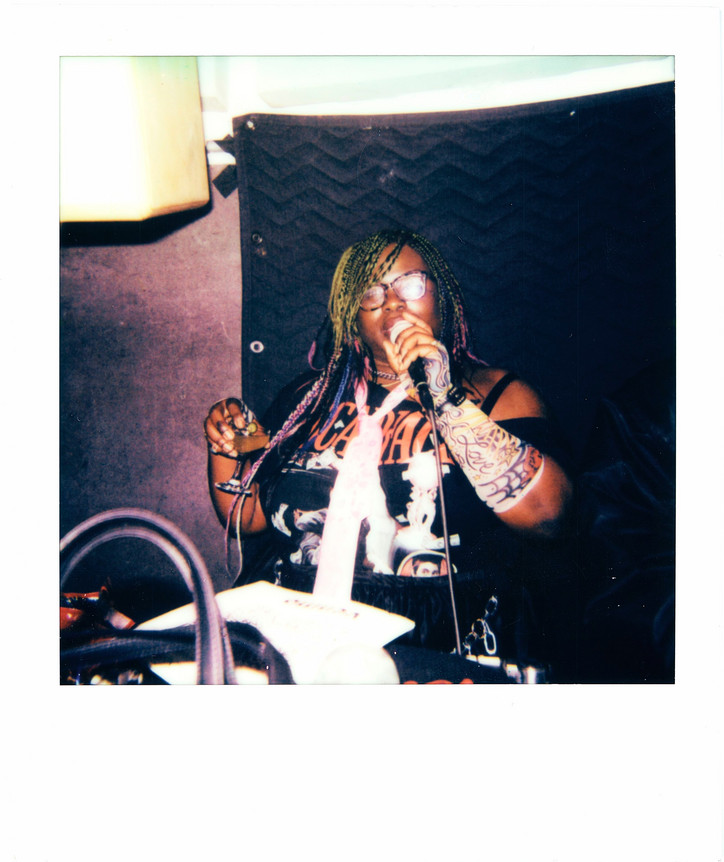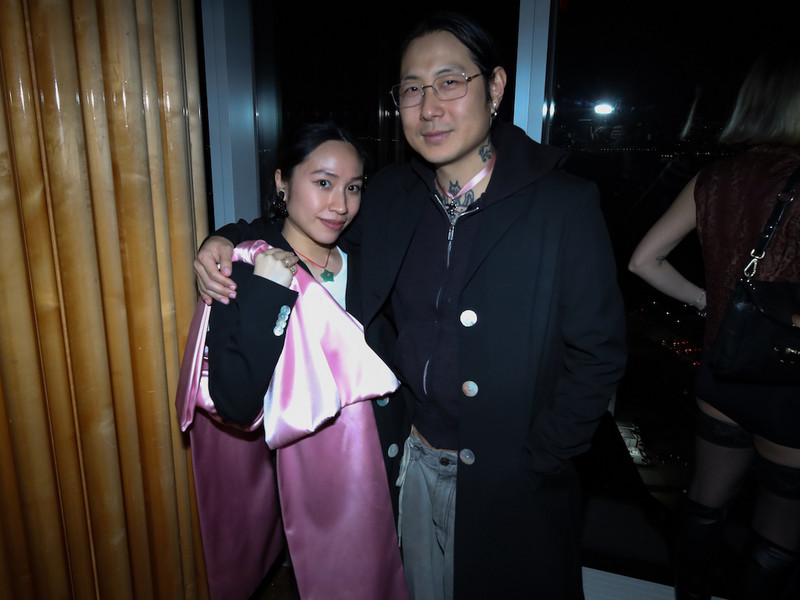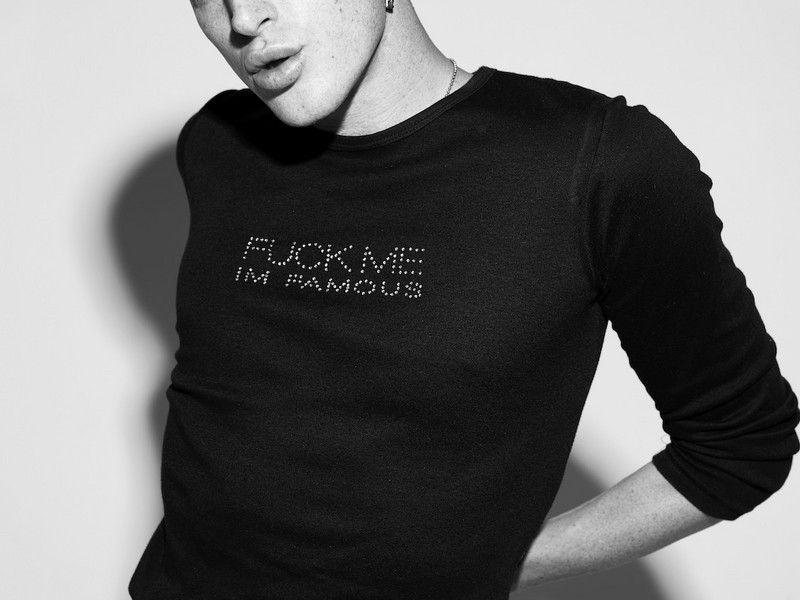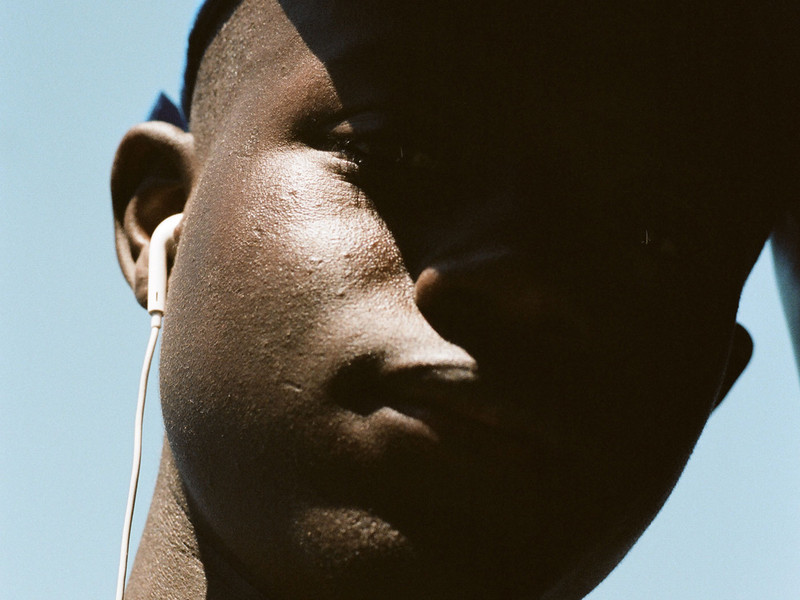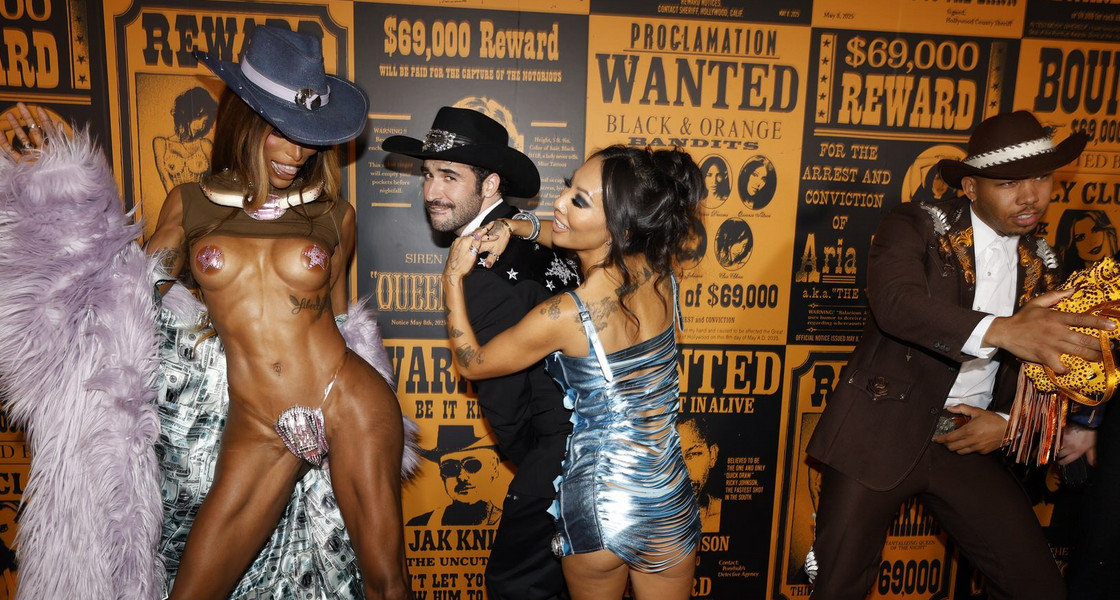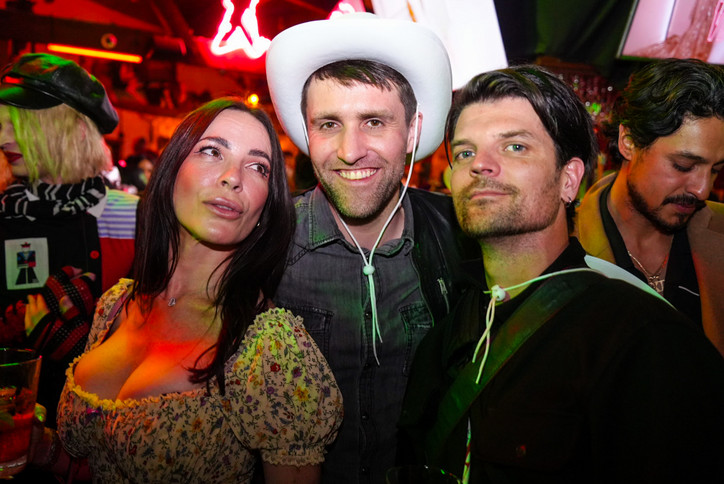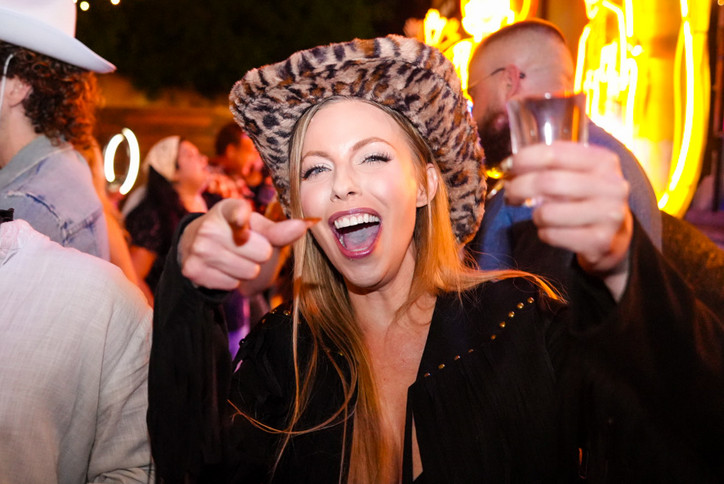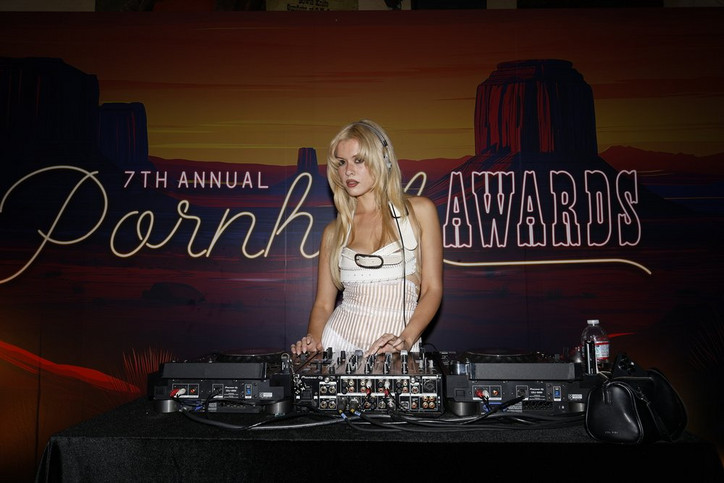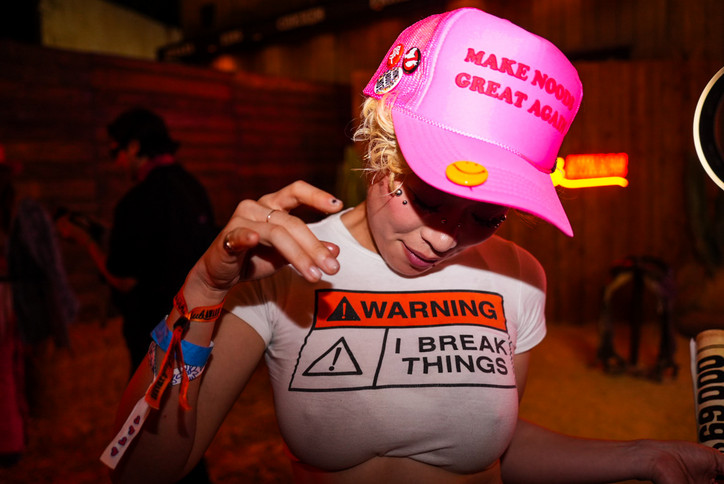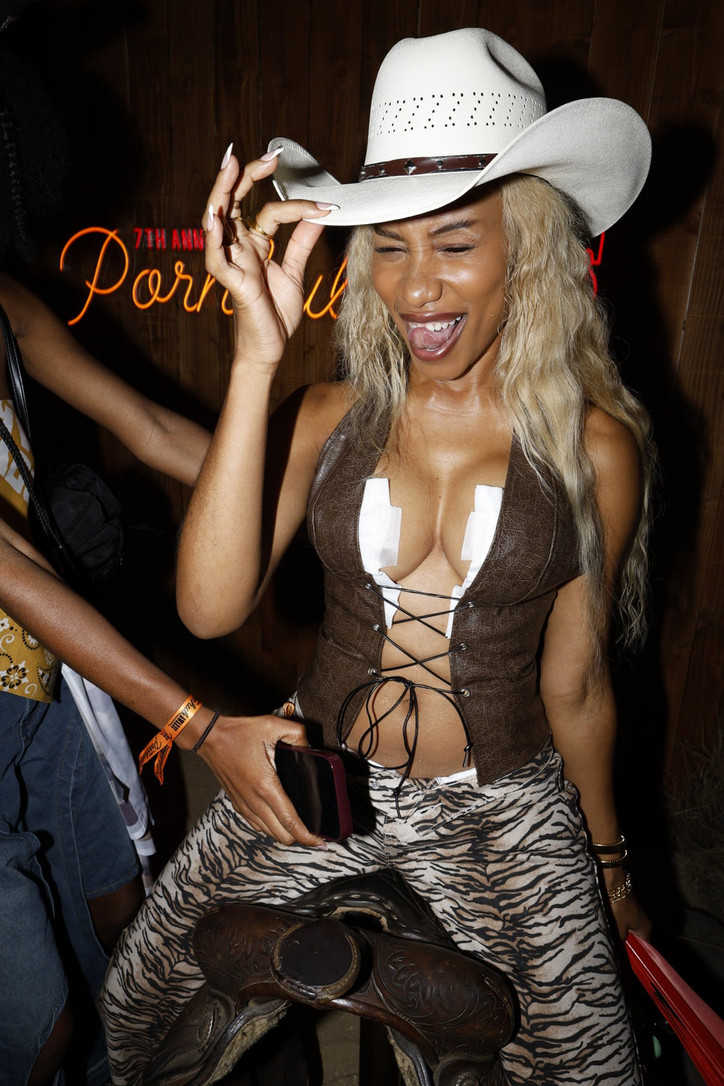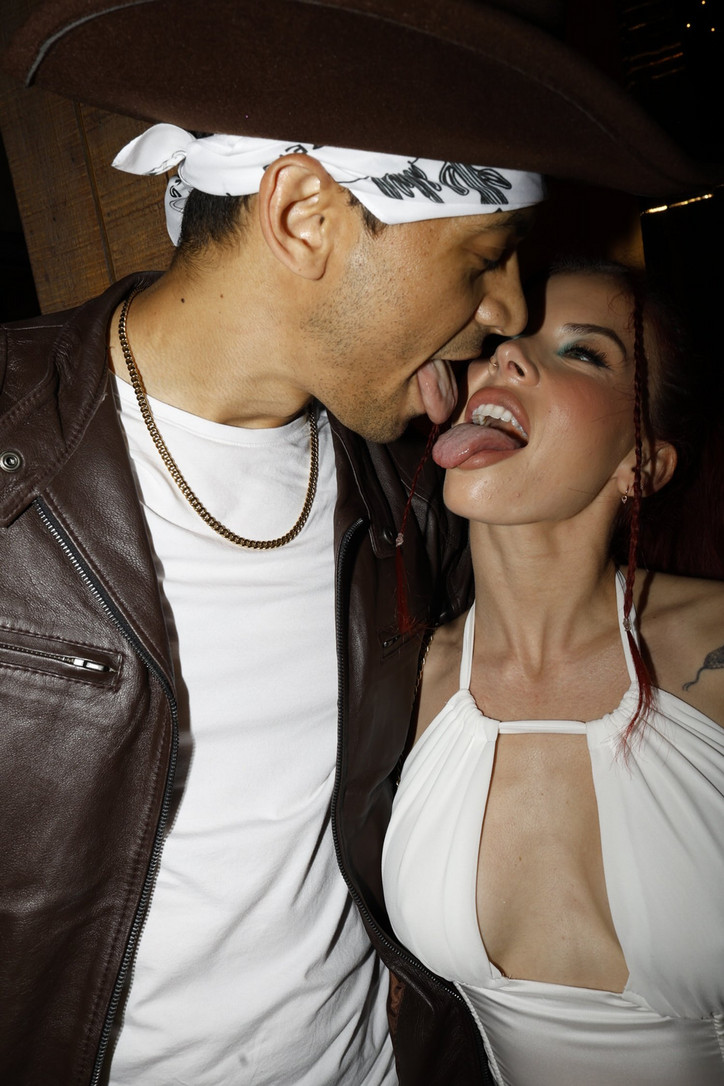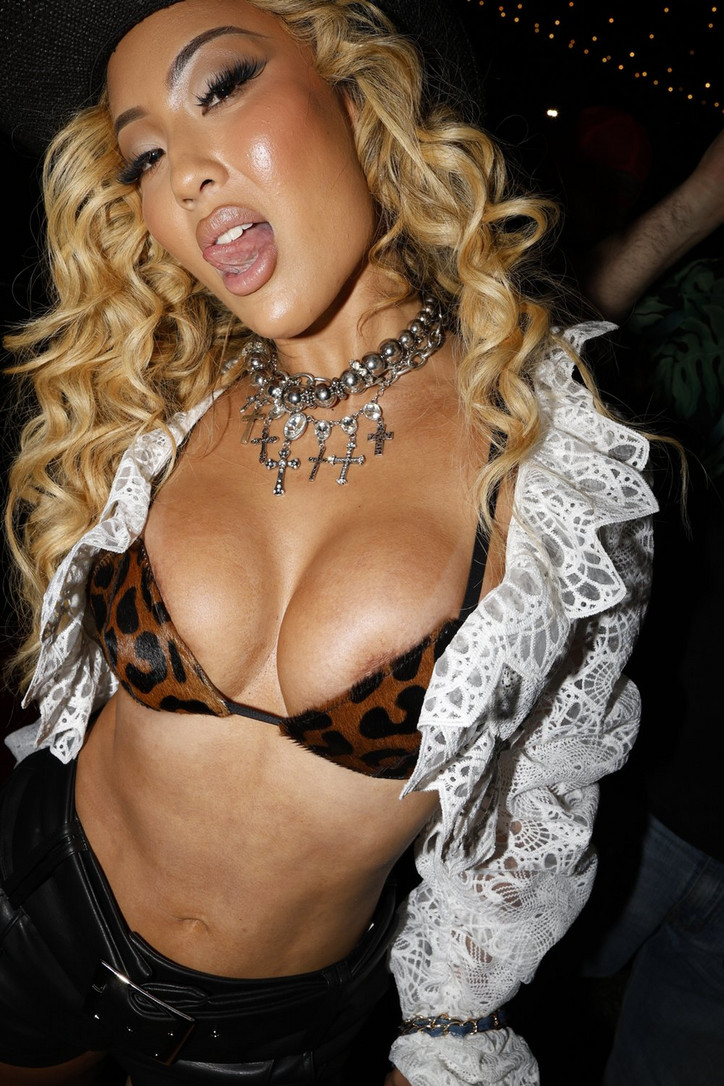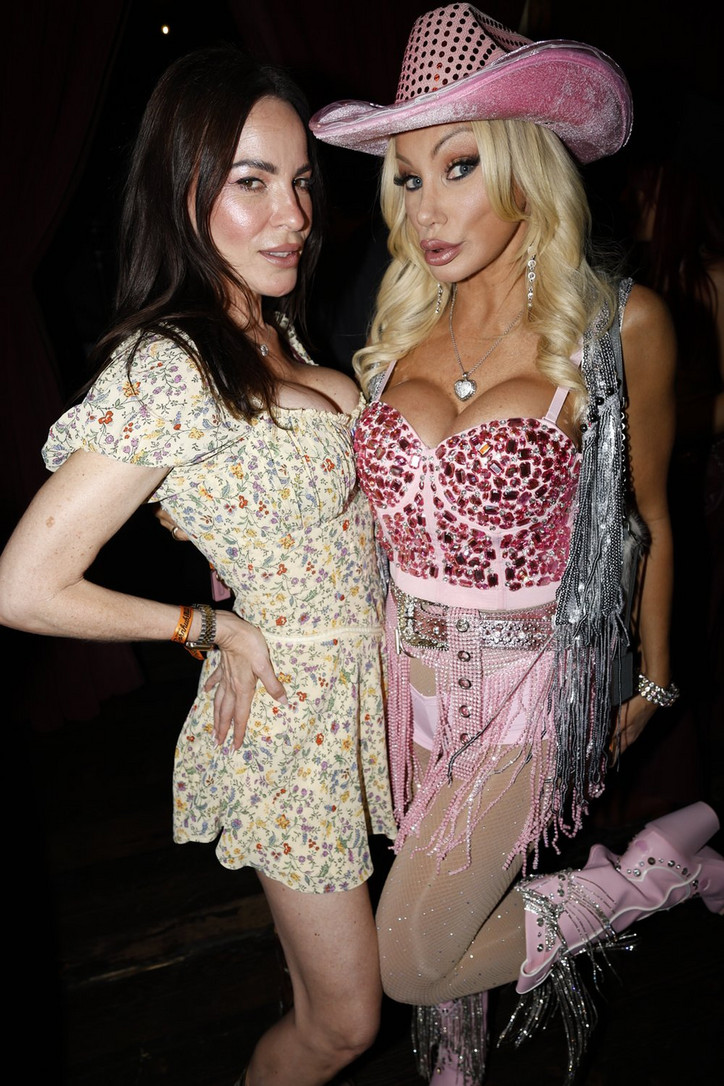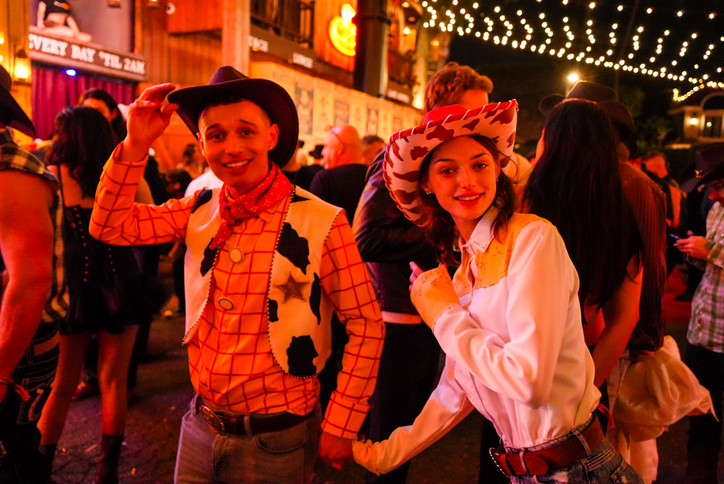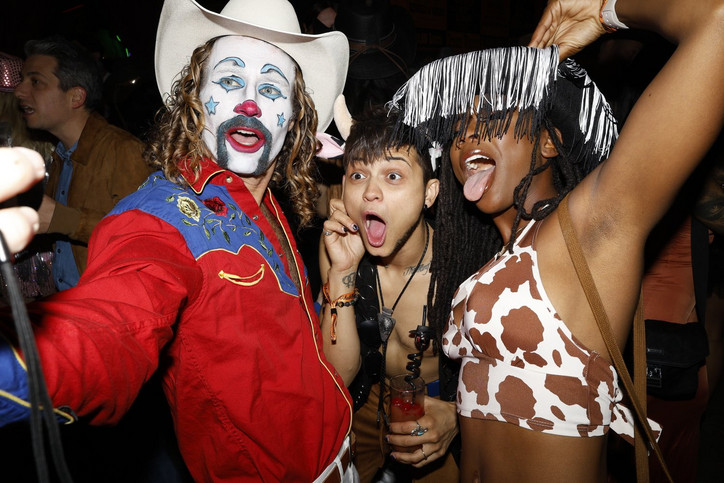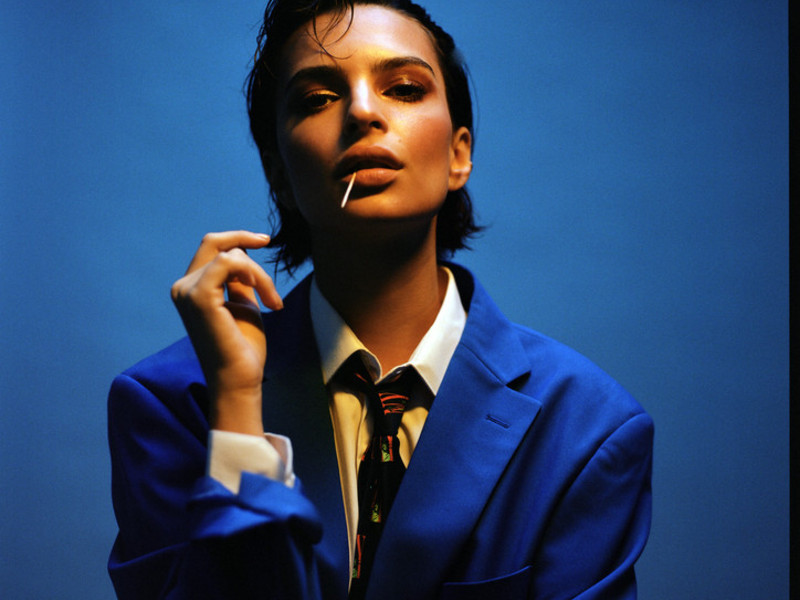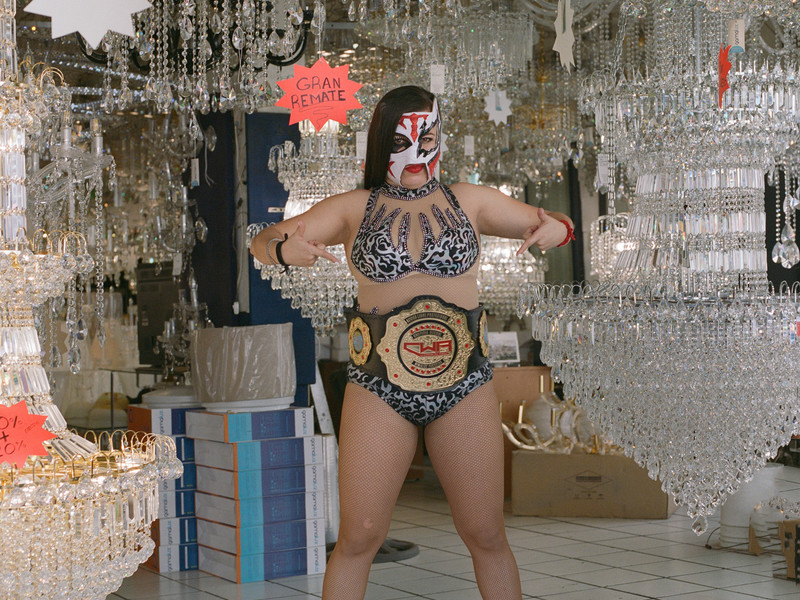The Medical-Creative

In the weeks following that entry, Wole—like countless other frontline workers—did in fact get sick, though he has since self-isolated and recovered. And like so much else in the face of an unprecedented pandemic, we made the decision to delay our April digital cover in order to faithfully represent Wole and his story, as we believe there is no subject more important to highlight in this moment than the self-proclaimed 'medical creative.'
Wole first caught our eye because of his Instagram posts—he stunts so hard in custom drip that, upon first glance, one would never guess that he's a full-time RN. But that contrast is Wole's motivation—the premise that you can have your hands in two wildly different career paths while not only succeeding, but being able to give your all in both fields, is what keeps him going every single day. "My daily life is just trying to prioritize my creativity while maintaining my career in nursing," he tells us.
And upon talking to Wole, you get the sense that this underexplored intersection of healthcare and fashion is truly what takes up most of his headspace. He talks about how he's started to design clothing based on the themes of transparency and vulnerability that he experiencs with his patients, comparing the pieces to x-rays, radiology, and CAT scans in the way that they explore interiority. He tells us how he wears the same stainless steel necklace, which is shaped like a pair of lungs, every day and has found its progressive rusting to symbolize the organ's natural deterioration. His duties as a nurse in paying attention to patients' bodies influences how he approaches the shapes and fits of his garments. And his ultimate goal is to design pieces specifically for nurses. "I feel like more fashion brands and the really big sports houses like Adidas and Nike should make certain clothing that acclimates to healthcare workers."
At office, we are committed to keeping art and creativity alive during this pandemic. We also understand that, in reality, art and fashion are not, and for many, cannot be priorities right now. Before finding Wole, we never thought that one could do both—play an essential role in saving people's lives while also imagining a post-pandemic future where fashion and medicine can somehow inform each other. Meet Wole Olosunde BSN RN.
You clearly have lived many lives. From skipping several grades in school to being the youngest man to ever graduate from Buffalo University’s Nursing Program, and now fighting this ongoing pandemic, what made you want to add fashion to that roster?
Well, fashion has always been a part of it, even from when I was young. I grew up in New York and being a young New Yorker, going to middle school and high school here, clothes held some type of importance to me. At an early age, that really helped me develop as a person in terms of trying to get more money and trying to do different business transactions. Cause you know, you're this young kid buying, selling and trading clothes, to try to get more clothes. So fashion has kind of always been a part of it. In middle school, I used to spend a lot of time in Bushwick because I would go to this store Mishika, a music store. I would go there to play street fighter. And then when I was like 12, I did a program at NYU, but this was like 2010 to 2012 when Soho wasn't really what it is today. So all of that has kind of exposed me to fashion. I've always wanted to make my own clothes, and as I got older and just had the means to do it. You know, you get older and your resources get larger, so you're able to do more things.
Did you find growing up as an acclaimed student, people put you into a box?
A hundred percent. It's like people expect you to choose between the two, when it's like, why can't I just do everything that I want? Why should I allow you to make this rule for me when I'm a young adult and I have all the time that I need to do all the things that I want. And graduating from school early, I didn't have the highest grades in high school. Like I didn't have the 90 average. But, it's about knowing what you want and knowing how you plan to get there. Because I graduated from college at 20 because of the foundational work I did. So all of that kind of just led up to the bigger picture that I am at now. Every New York City high school kid can graduate early. You don't need to spend four years in high school. You know, you only need to really complete the requirements. But ideally, the best thing is to really just get out of high school and start college if that's what you want to do. But if it's not what you want to do, then you really just take these classes and know where you want to go. In terms of knowing, knowing self, knowing where you want to go, knowing what you wanna do, and being aware of that as you grow up. It'll help you guide to the bigger picture.
And you have immigrant African parents, how did they take your transition into the creative world?
I'm Nigerian. They immigrated here. My dad came to New York in the seventies and my mom came in like the late eighties. I don't think they realize the money that's in fashion. 'Cause that's how immigrant parents think, because they were kind of conditioned in a place where it's like, I have to grind out the hustle. I need money. I came from this country and I'm in America now, and I don't have much money. What am I going to do next? What's my next job? What's my next idea to make more money? So money and financial issues hold the biggest theme in a Nigerian household. But, in terms of doing fashion along with medicine, my parents were okay with it because they knew that my studies wouldn't really be affected. I'm pretty good at being responsible with what I have to do and meeting the requirements. So they would just try not to allow the fashion thing to obscure the goal of completing school, which I am thankful for.
As a young person, you hold different things to a certain priority and you might prioritize certain things over things that may help you in the long run. And you know, your parents kind of just help you stay focused through that. They definitely were not as accepting of it before I graduated college. Because you know, you haven't secured that security. Having a degree is a form of security, in a sense. But, after I graduated they definitely became much more lenient towards my lifestyle as a whole, just because I'm kind of more established.
So in moments of this pandemic people are able to find themselves and work on their passion projects. With you being multifaceted in the field of your career, I’m sure that you’re prioritizing one over the other, how has that affected you?
My daily life is just trying to prioritize my creativity while still maintaining my career in nursing. I work about three or four days a week. Aside from that, when I'm at home, it gives me a lot of time to create. I'm always on my laptop. It's like my laptop is my best friend. I've been working on this umbrella line that I want to do. My brother I moved out and we have an apartment now, and since I've been traveling so much this year, this is giving me a chance to slow down. I tried to find some artwork for the apartment, that's what I've been really focused on. It makes you realize, you know, being forced to be home, it makes you want to make your space a place of serenity. So I've been really focusing on trying to put my apartment together and making more clothes.
When you’re approaching the medical field and fashion world, do you often see those intentions overlap ever? Do these professions ever inspire each other?
They definitely inspire each other. For me, even with the clothes I'm working on right now I'm doing this thing called Against Medical Advice. It is like a brand based on the premise that people often want to put you in this box. They say, "Okay, you're a nurse, then be a nurse." And they're focused on that, as opposed to looking at you as a person and all your other interests. So, it's just about leaving the hospital on your own and deciding against the scientific information that the doctors are giving you. You know, choosing your own prerogative over what has been "proven." So, that's the kind of idea of a lot of the clothes. So I work in the emergency department. I come across a lot of different people with a lot of different stories. It's beautiful to listen to them and be inspired by them and the things that they tell me. And I work in New York, so people who grew up in New York are telling me about what they used to do. It inspires me to work harder and inspires me to live my life to the fullest.
The hospital, you know, it's like a portal. It's like either you're coming in because you're sick, there are people there that are dying, but yet they're still being brought on. My job inspires me a lot in terms of just life in general. It still has a very big impact on my artistic work as well. Being a nurse, you know, you pay attention to detail, you pay attention to the body and you see so many different types of bodies. And being a designer you want to—I want to specifically create for all types of bodies and all types of people. So, my nursing job kind of gives me a way into a realm where people are getting into that. Where people need compassion, where people want to speak, people want their story to be known, they want to be heard, they want the help that they need. And just being a nurse, it's lovely being there, to be able to give that to them while still being a sponge and absorbing all the information that they're giving me. It's beautiful to apply to my life and my artistic journey. I'm really proud of that.
With this, you talk about breaking down preconceived notions of people in creative fields not having an interest in medicine. You say it’s not impossible juggling the two, but I’m sure it’s not easy. How do you find a healthy balance?
It's definitely not easy, especially when you're still in school. It sometimes sucks everything out of you. You know, there are periods where you have to be focused specifically on school and there are periods where, you know, you might have more time to be able to design. But after school things get a little better because you can schedule your work week, so you can only work half a week and still have time off. Like nursing is definitely something where you're a little more autonomous in your scheduling. But like if you want to go to med school, you're going to be sucked into just school for a really long time. And that's a commitment that you really have to be invested in. I loved the route that I decided to take instead. But it's definitely possible, like anything is possible. People take that for granted, because of the things that society tells them they can and can't do. Even in school, going to an advisor in college, this person doesn't really know what you plan to do with your life. Like they're just there to help you and try to guide what they think is best for you based on your grades. But you can't allow that, you know that you don't want your past to shape what you're trying to do. Even if you got like a C in the class and they're telling you you're not going to be able to get into this program cause you got a C. It's like, "I could probably take the class again and try again." But they're not going to tell you that because they're going off of what's already been established, even though you have this other dream and goal for yourself. So it's really just a matter of being headstrong, knowing what you want, and balancing your responsibility. Like if you wake up early, you can definitely fit like a 30-minute workout, then go about your day and be able to study for like two hours, especially when you're completely invested in school.
Because of the way I did it, I worked a lot before I went away for school to save money. I was just doing everything. I was like selling clothes. I was like literally just doing anything I could to like save as much money as I can so that when I'm in nursing school, I don't have to work on that. I just have to focus on school, cause it's like you're in school but you still have to work at the hospital 24 hours a week as an internship. So you already have a part-time job that you're doing for free, they're not going to pay for this because it's a part of your studies. But then on top of that, to be balancing being the youngest person ever to graduate from my program. There are other people who are in their forties or fifties and you see them juggling three kids, another job, and mortgages. And it's like, "Who am I to complain when I'm in school with no other responsibilities? This is my only focus." So that used to inspire me a lot.
How important to you is it to use your platform as a voice from inside the hospital during this time?
It's definitely really important, especially in my age group. Not many people have friends that are already nurses or already doing something directly in the hospital. Young people relate more to younger people. Like when an older person is telling me to do something it'd be like, "Yo, you're not my dad. Like what are you actually telling me here?" As opposed to someone that I know I can relate with. I feel like having the inside eyes and having that inside voice, it's important for me to use it even outside of the workplace. There are certain things that people need to know. We live in an information age and information is just the most important thing. It's like the most tangible thing in the world. Like for you to be equipped with the knowledge that you need to know, especially during a time like this where there are certain things that we can do to protect ourselves outside. It's important for us to have that knowledge and be able to know how we should operate. I like to just kind of dwell how sharing information could impact somebody else and you don't know how much someone else could relate to this.
You’re selling “Against Medical Advice” pieces, what was the inspiration behind your most recent pieces?
It's funny because social media has been talking about love and sex and you know, just emotion in general. Like we're at a time where emotions are very heightened because of the crisis. So I feel like people are isolated a little more, they're in their own thoughts a little more. Which definitely can be a good or a bad thing because, in a time of a pandemic where people are forced to stay inside, some people mentally can't be inside for long periods of time. From a medical standpoint, it's interesting seeing the things that come of it. I'm designing a lot of stuff based on transparency and comparing it to x-rays, radiology, and cat scans. I made like some umbrellas based off some of my favorite movies. So I've been like doing a lot of research in terms of setting up imagery in a certain way. I have a whole bunch of stuff that is based on radiology like I said in pertinence to transparency and being emotional with someone.
I’m sure this moment in history will leave a big imprint on you not only as a creative but also as a medical professional, how will it leave its mark on you in all aspects of your life?
A lot of things are going to change after this. Just like in terms of the way we can interact with people. Even going to parties and like being at a bar, you notice just how actually crowded they are. And you know, before being in that type of space, you're kind of like, "This is okay, there are people I can talk to," and then now it's like, the other day I got on the bus, and there were too many people on the bus. I was like, "This is like a regular day as if we're not, you know, in quarantine." And I honestly had to get off. It gave me a little anxiety. I'm like, "I don't want to be in this space right now." It's going to definitely change the way we interact with people. Even the way we travel, like how cautious we have to be when we travel. In terms of fashion, I definitely know it's going to change the whole world of fashion. We will have to find a different way to be able to portray clothes. We can't shop in stores anymore.
What is paired perfectly with scrubs that make you feel confident enough to go into work and fight these ongoing cases?
There's this chain I have that I bought right after nursing school. It's like a crappy stainless steel chain. But it's a set of lungs and I wear it every day where it's kind of become a sentimental thing for me. You know like a pair of lungs, first it starts off like super silver and then it keeps rusting. So it kind of ages like, you know, like a real pair of lungs. Also, definitely cool colored stethoscope. I have a pink pair and I had a neon green where I "lost" them. And sneakers for sure. But then I stopped wearing sneakers just because I would think about like infection control. I rotate between these air max TN's that I have and a pair of Nike X cold walls. I definitely want to get into designing some of that stuff and making things for nurses. Like watches, little watches that you can have to wear to work because you don't want to wear your other jewelry to work. I feel like more fashion brands and really the big sports houses like Adidas and Nike should make certain clothing that acclimates to healthcare workers.
That's a big goal of mine. I definitely want to eventually work with them because nurses are on their feet all day, we're running back and forth. We're actually like doing pretty strenuous activity. We're moving patients. It definitely takes a toll on your back or your physical health in general, especially being a nurse for like 20 years.
What is some medical and non-medical advice you can give us during this time?
I always try to live by living on your own prerogative, just like making your own decisions and always hearing the suggestions of others and never allowing it to completely shape what you want to do. I'm a person who doesn't like to lie, I hold a very high esteem of confidentiality. I think a lot of these come apart with my job as well. Just like in terms of HIPAA and not being able to disclose anything. I try to hold that same standard to my friends. When it comes to living on your own prerogative, I feel like everyone should have their own set of ideas and their own set of goals. People are always going to critique you, that's a part of life. People are gonna put you in their box and tell you what you probably should do. I'm never gonna say you should shut that out, but, I'm definitely not for allowing that to completely shape your idea.
In terms of medical advice, I'm wearing a mask. It definitely protects you outside. So like, even if it's some type of covering. Like if you're going for a walk, you should wear one. Wash your hands. I cannot emphasize that enough. Washing your hands is so important. In nursing school that's what they emphasize the most. Hand washing is more important than wearing gloves. Like if you're wearing gloves, then something can still get on your hand. You can take the gloves off and something can get on your hands. But if you don't wash your hands after that, now you're just spreading whatever. I advise people not to wear gloves because it makes you wash your hands less. When you're wearing gloves you're still touching stuff and when you take off your gloves, you're still touching those same things all over again. You're still getting in your car and touching your steering wheel. Like, your car is your own space. You don't need to wear gloves in your car, same thing as your phone. I think the glove thing is like a crutch for a lot of people because it doesn't force them to wash their hands as much as they're supposed to.
NYC Health & Hospitals for Good is an organization that donates directly to NYC Public Hospitals. If you're able, click here to make a donation.
